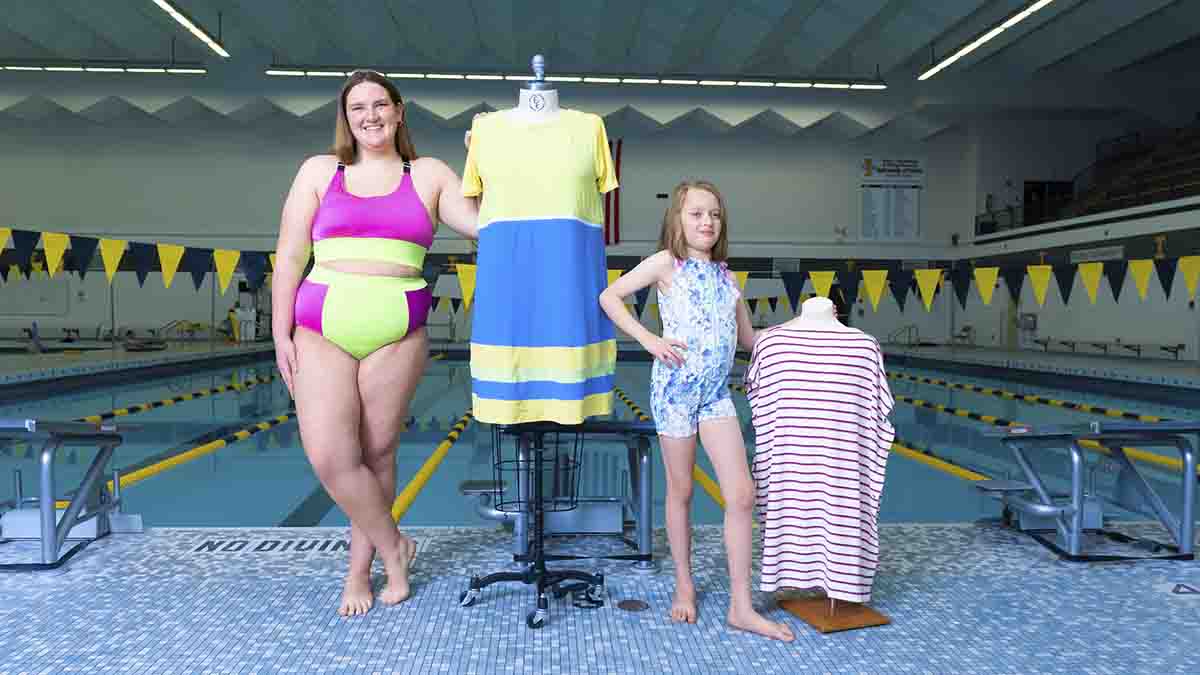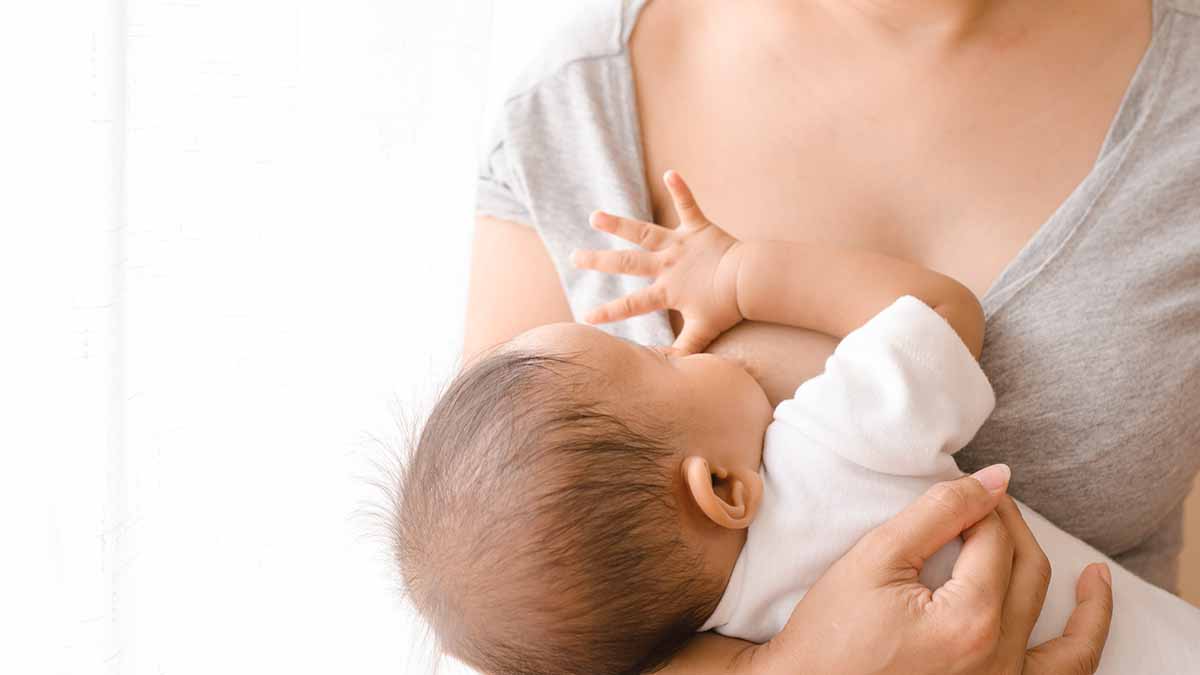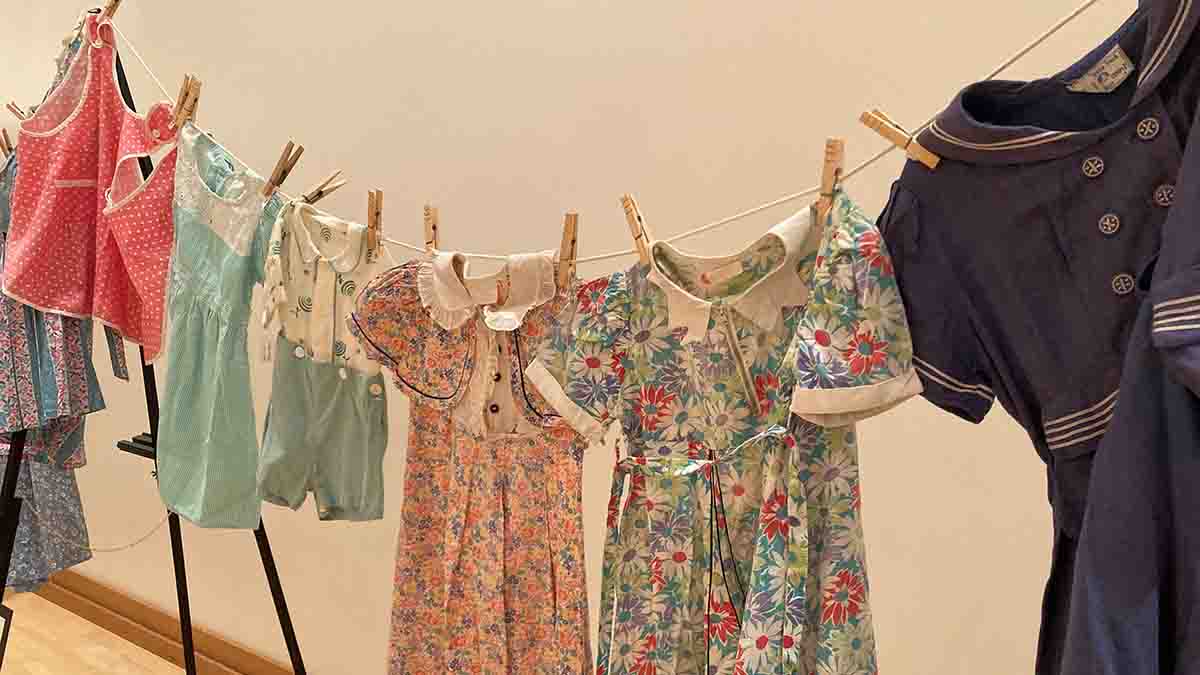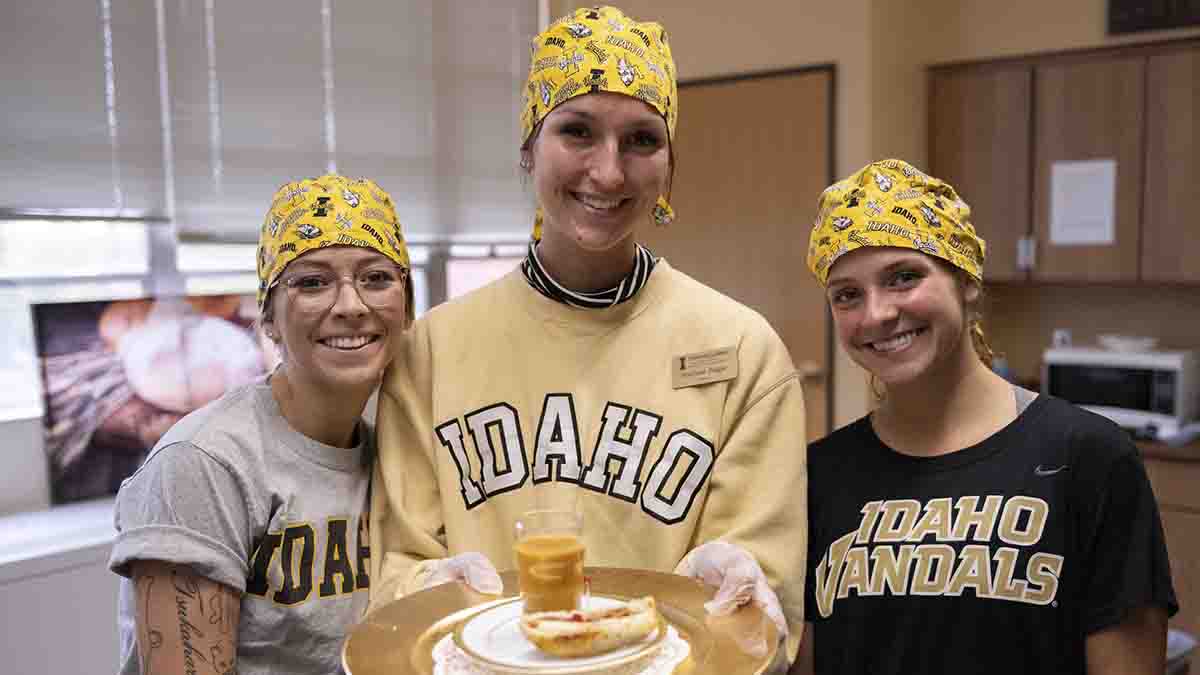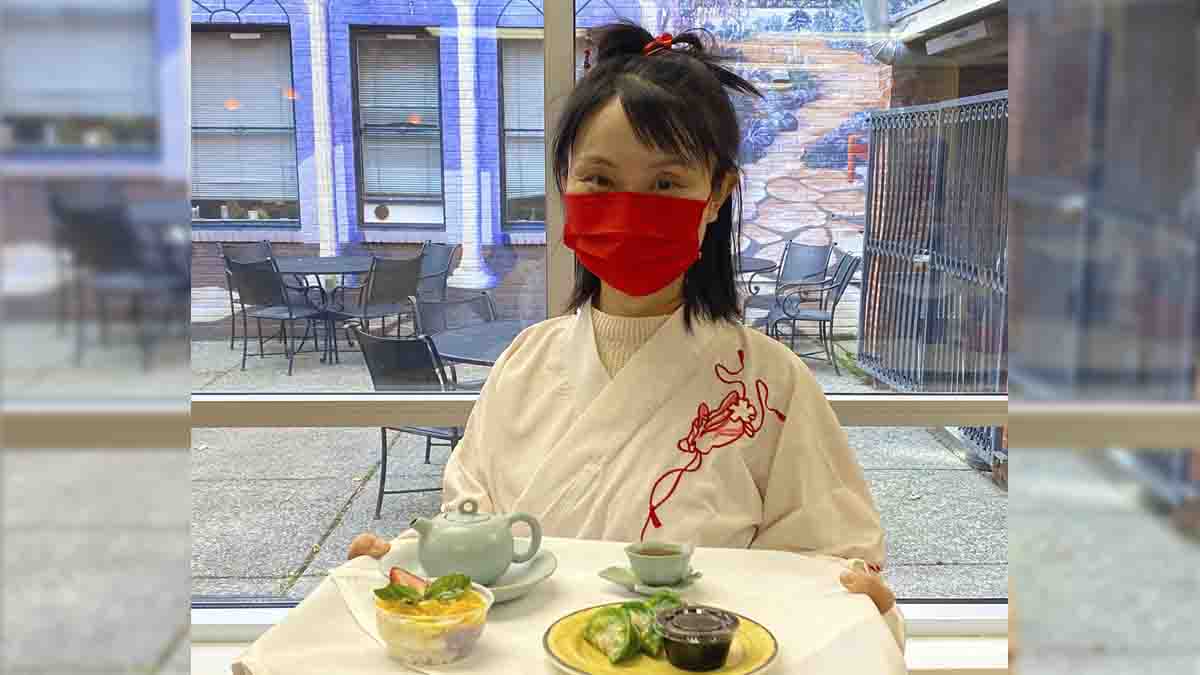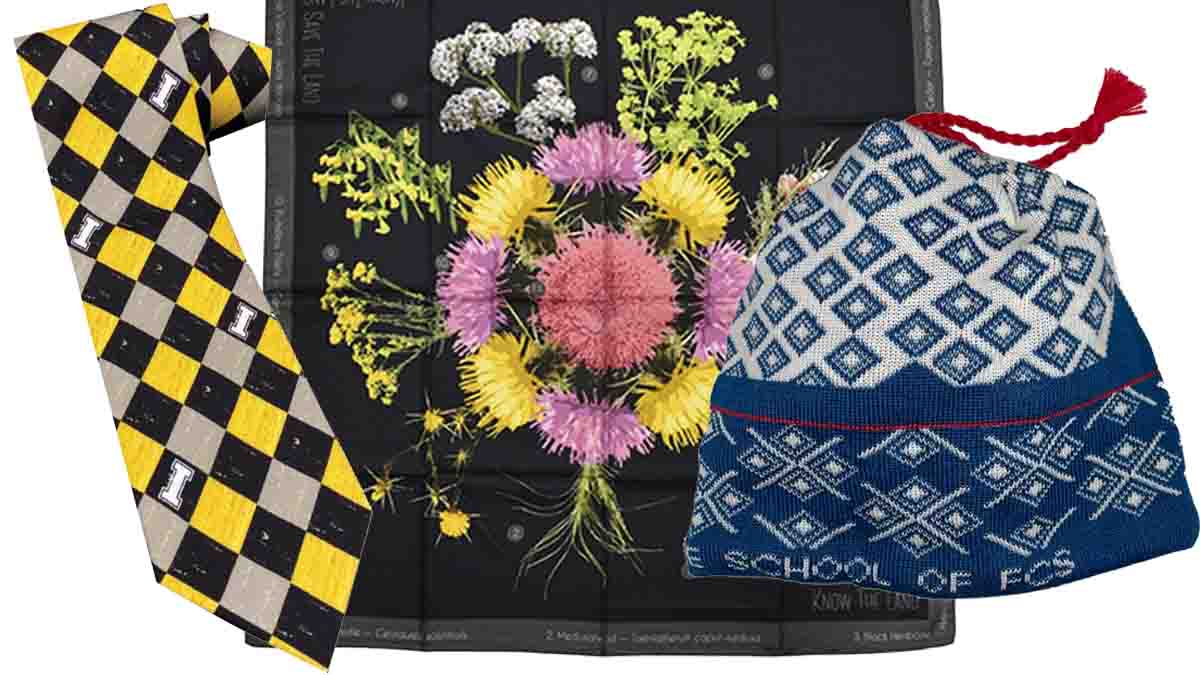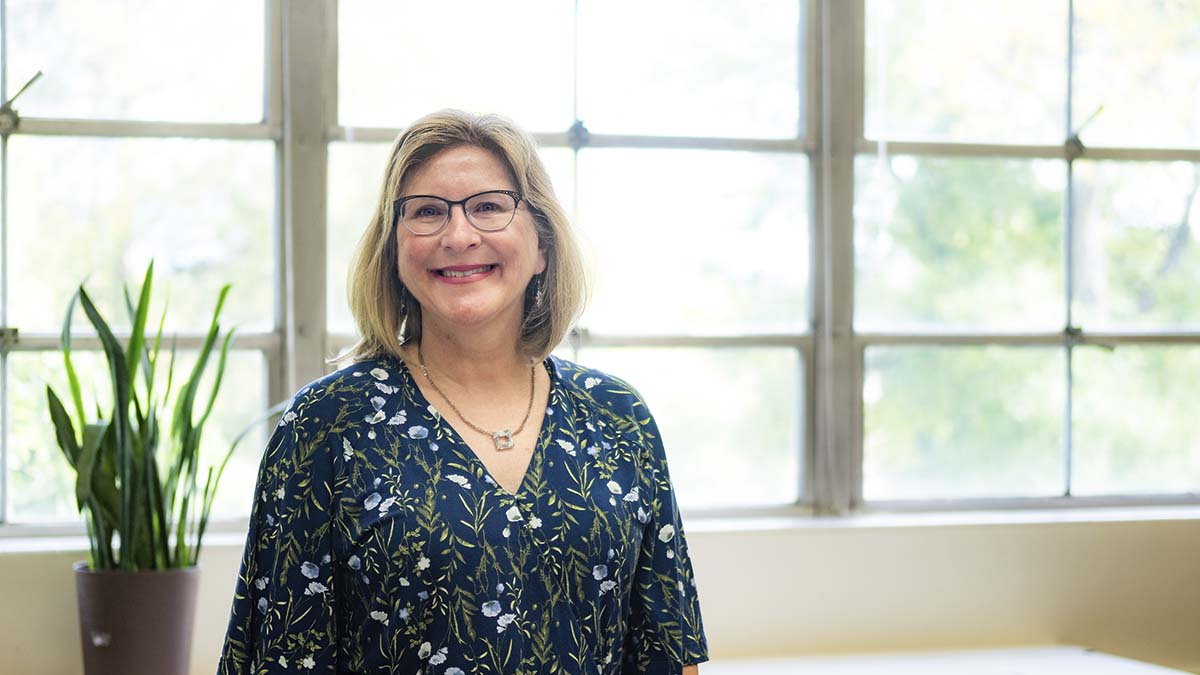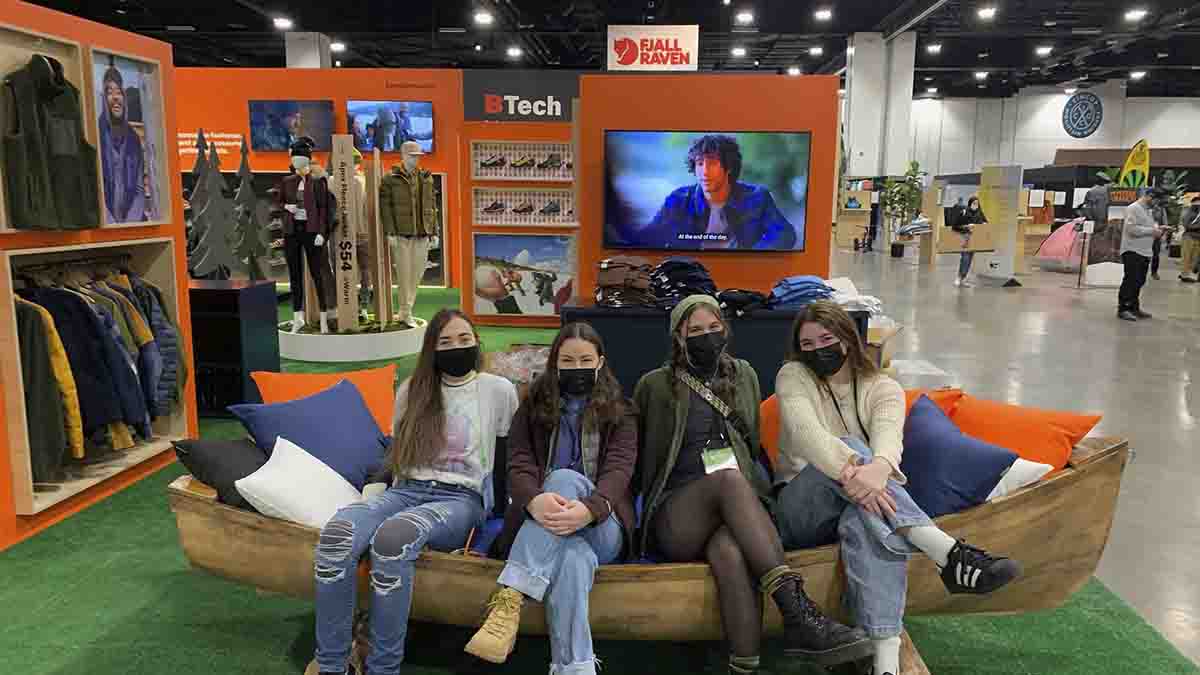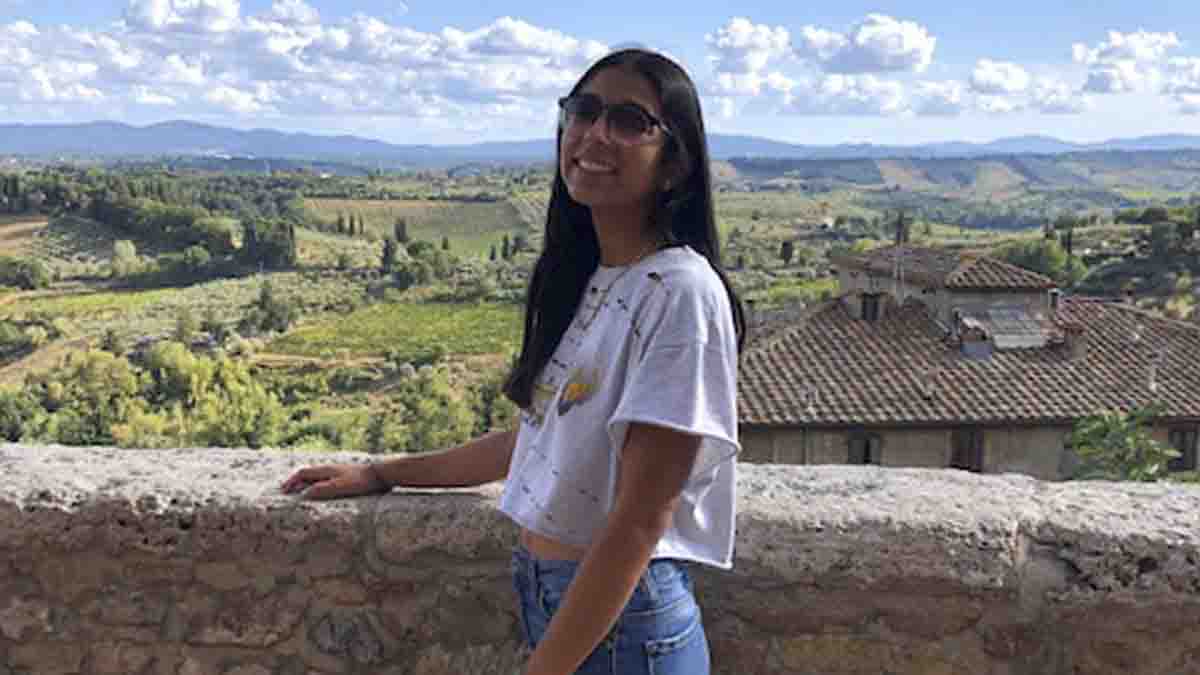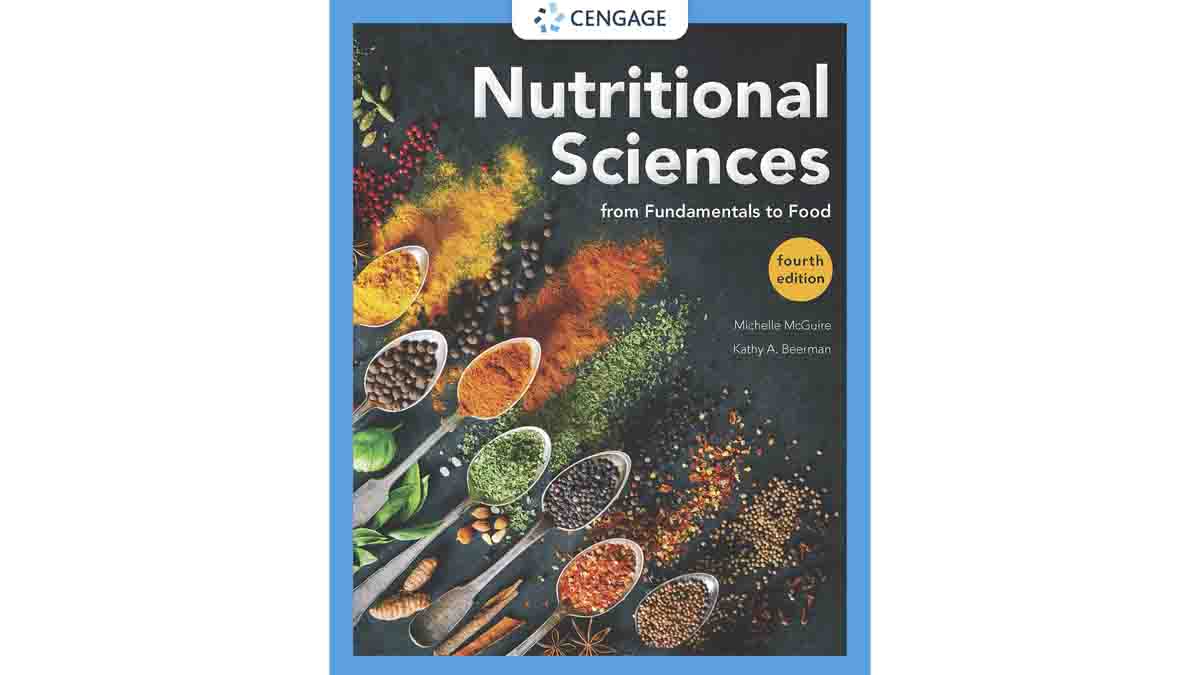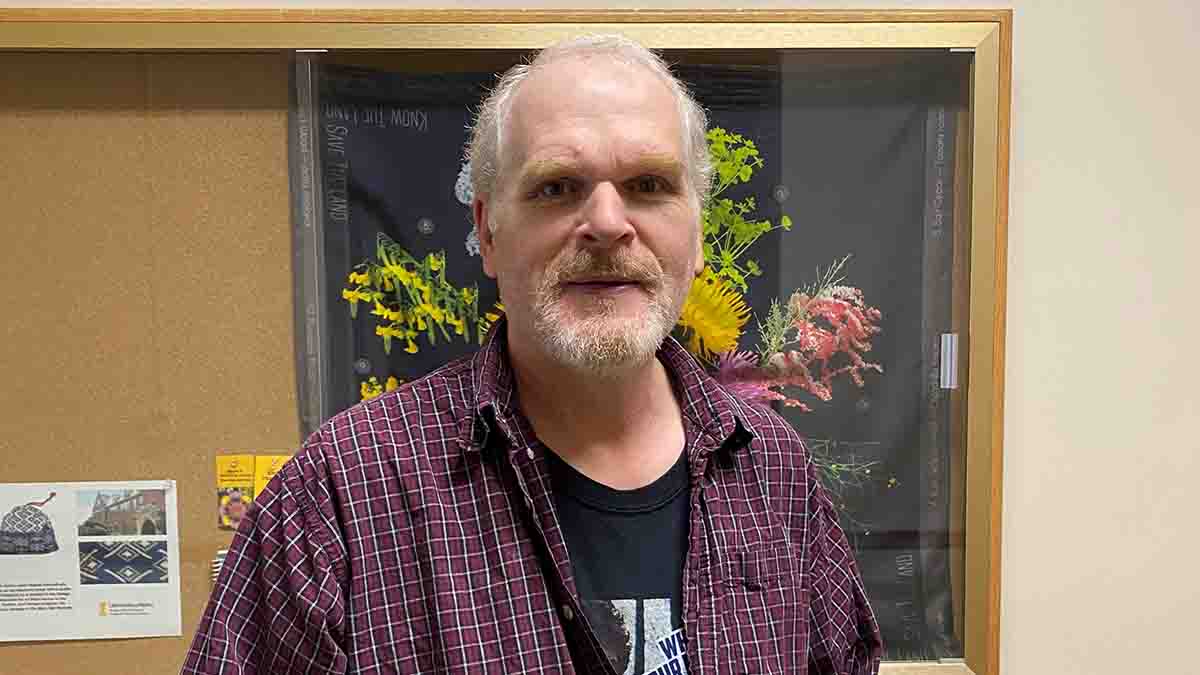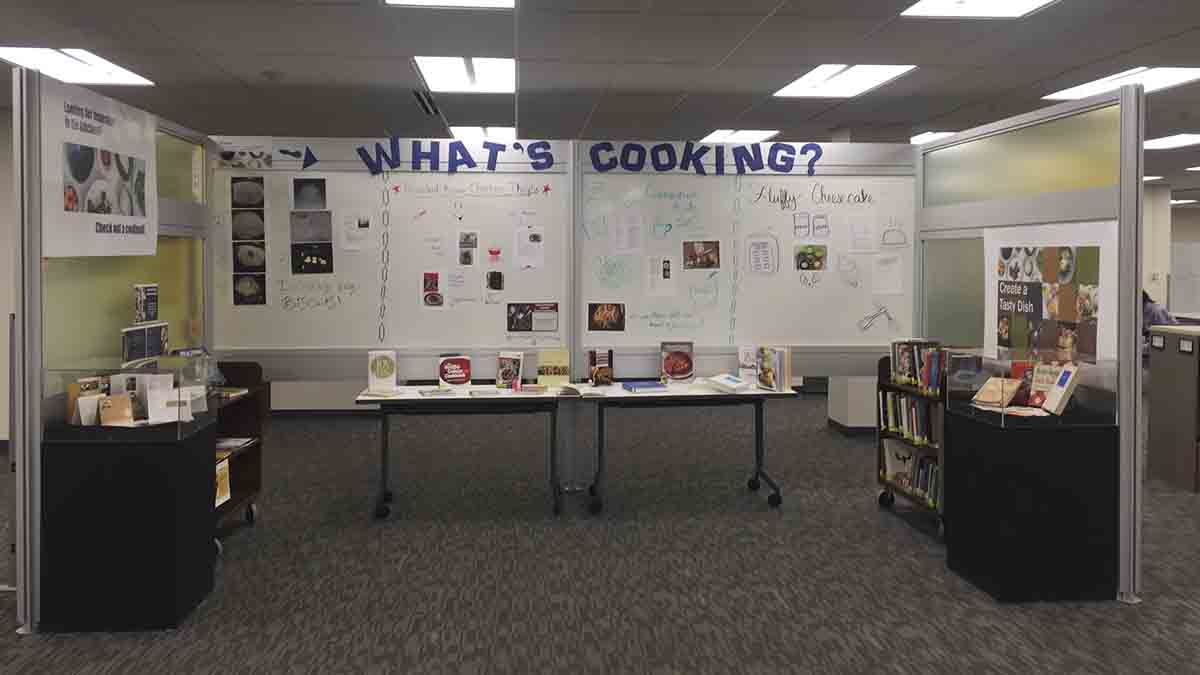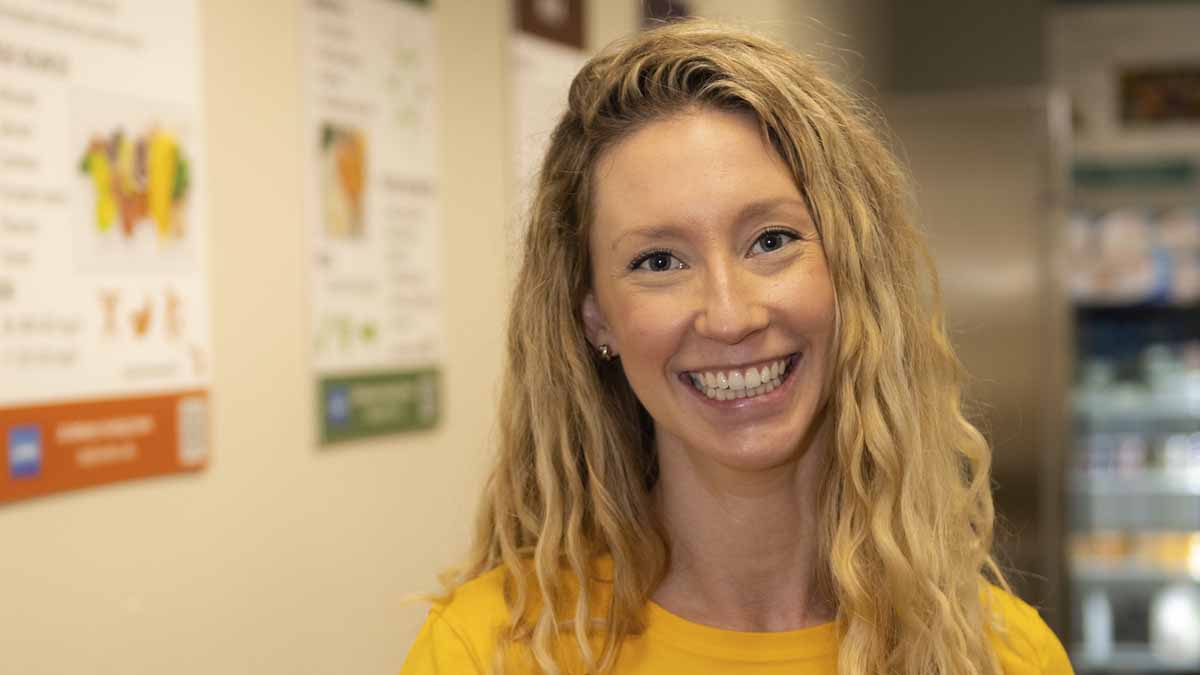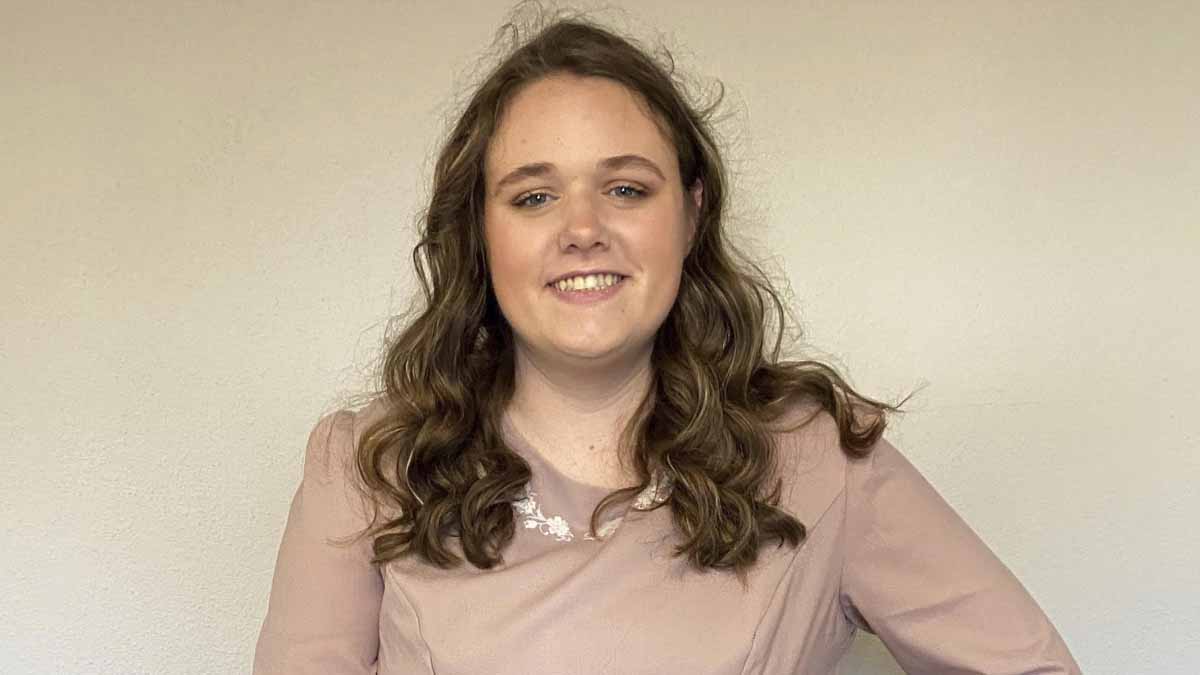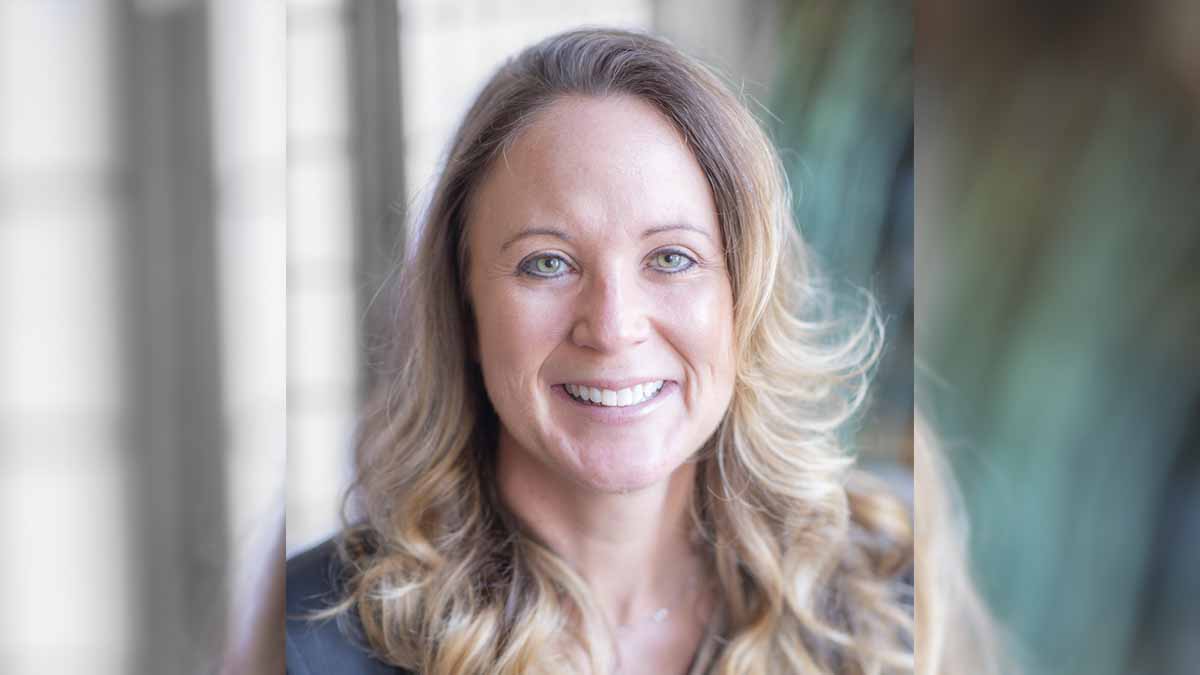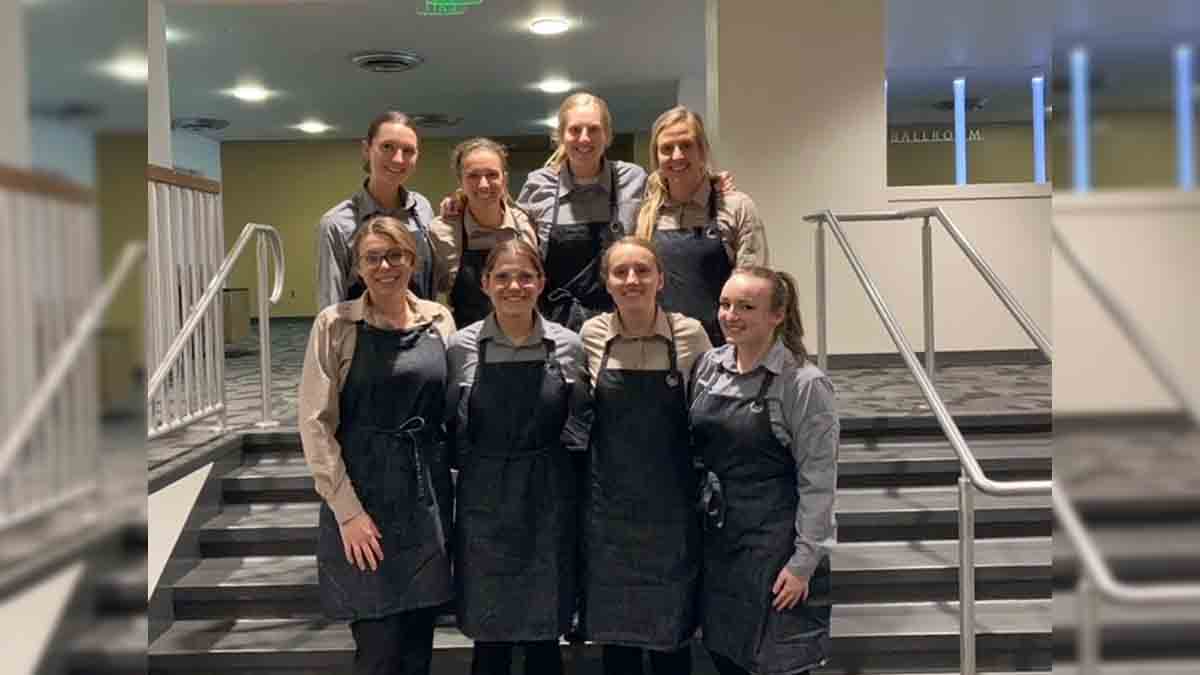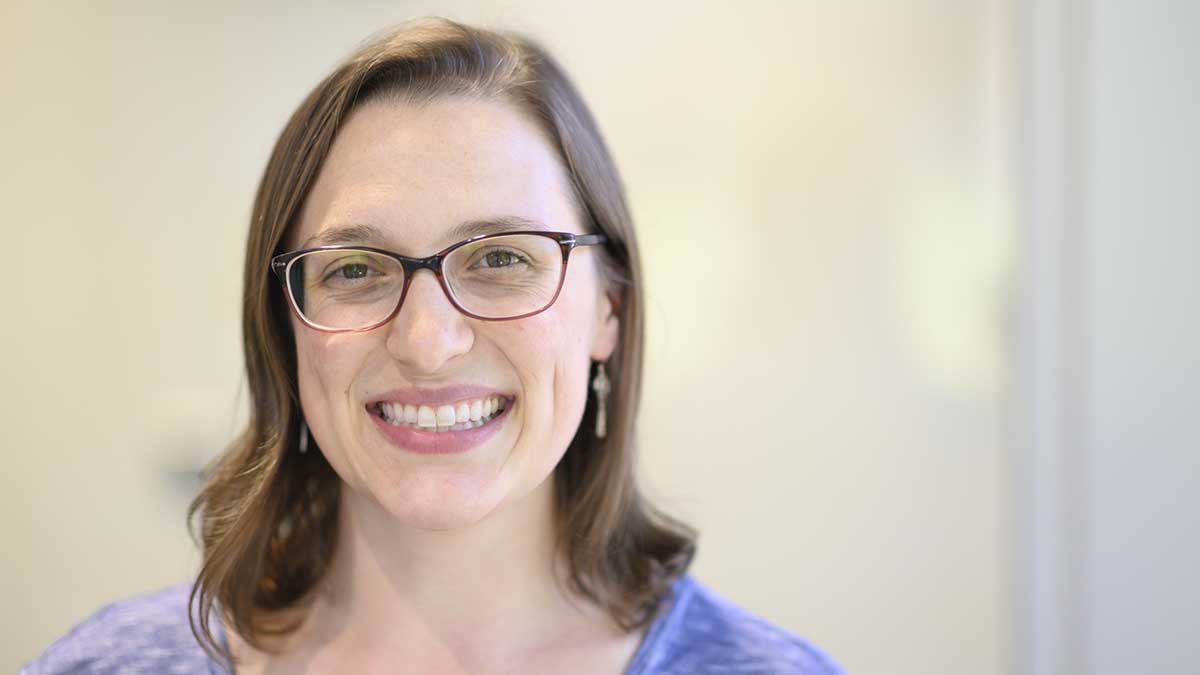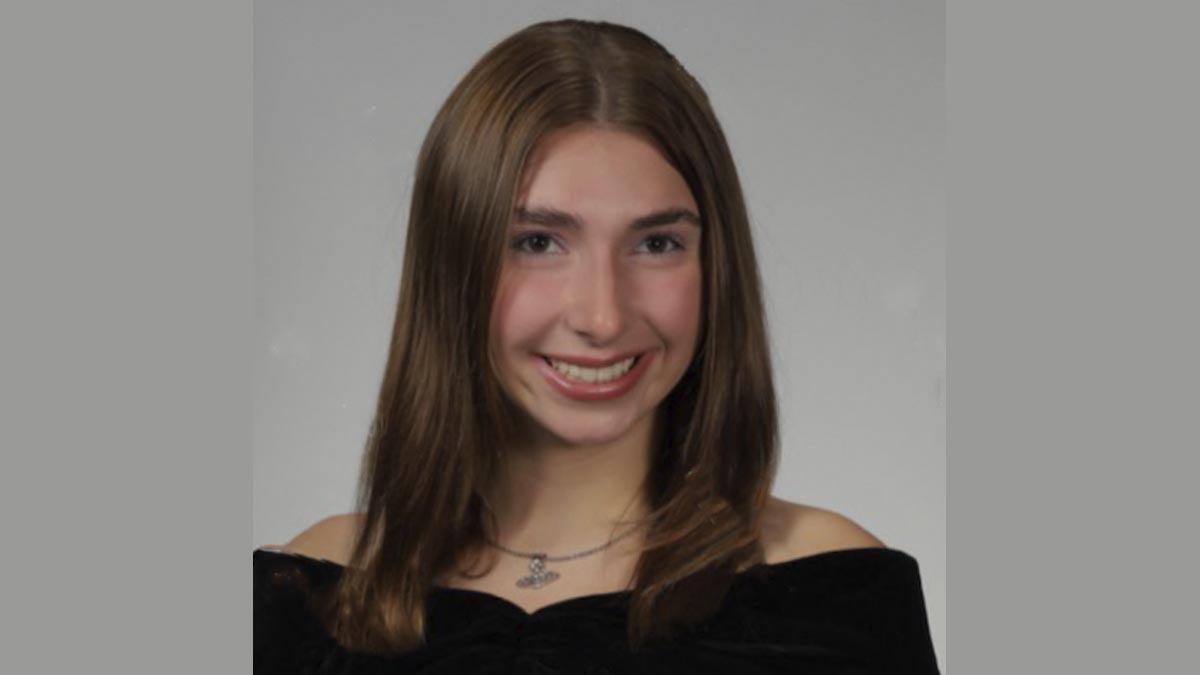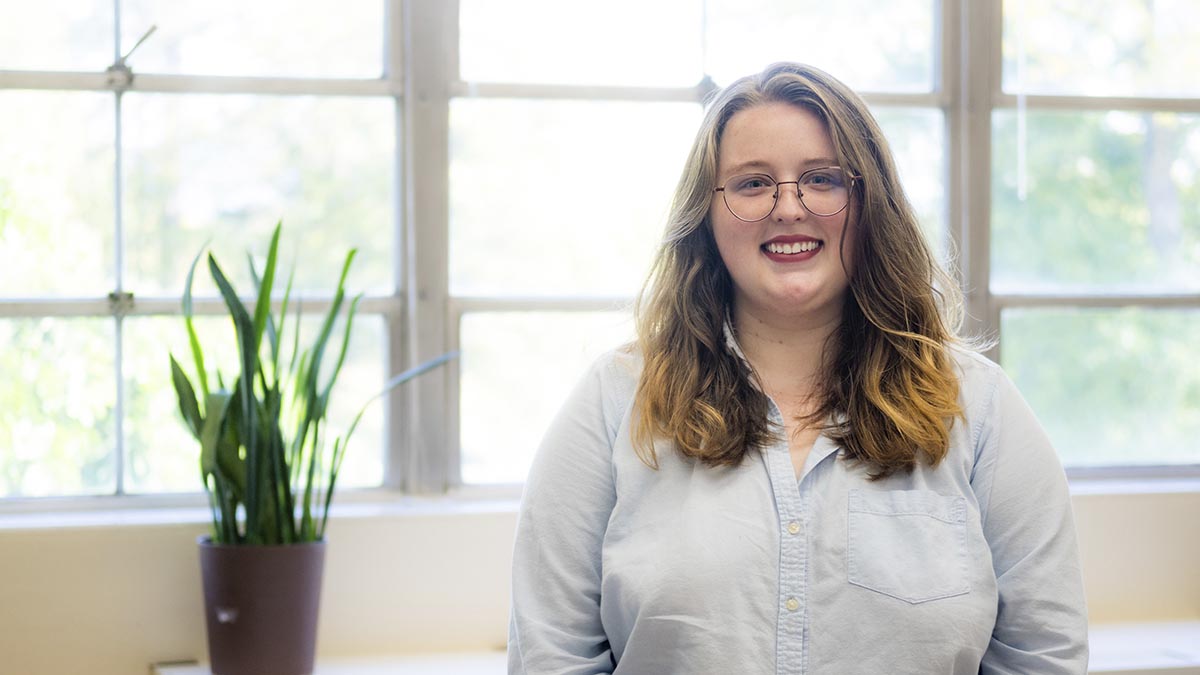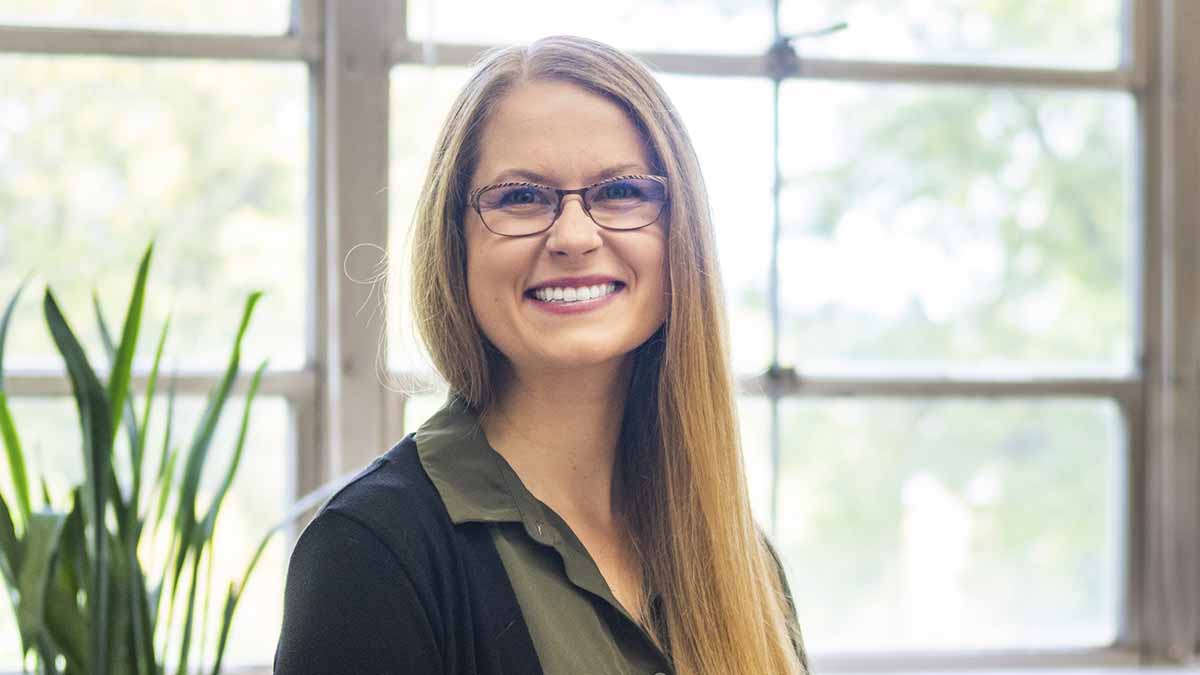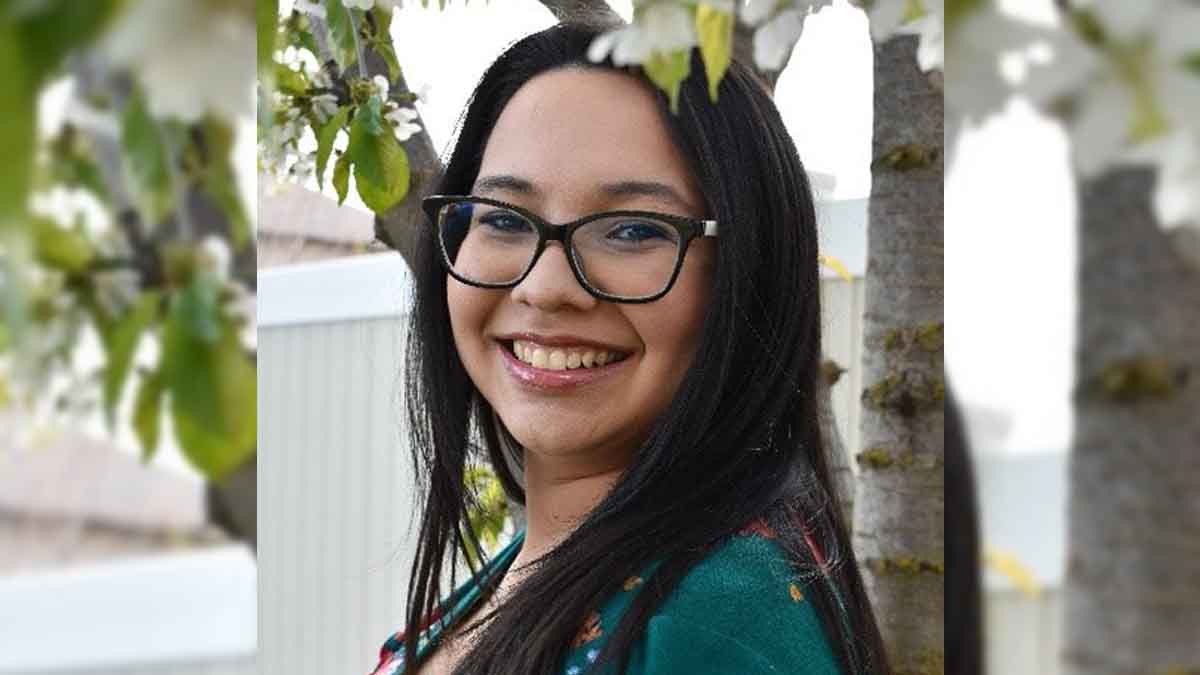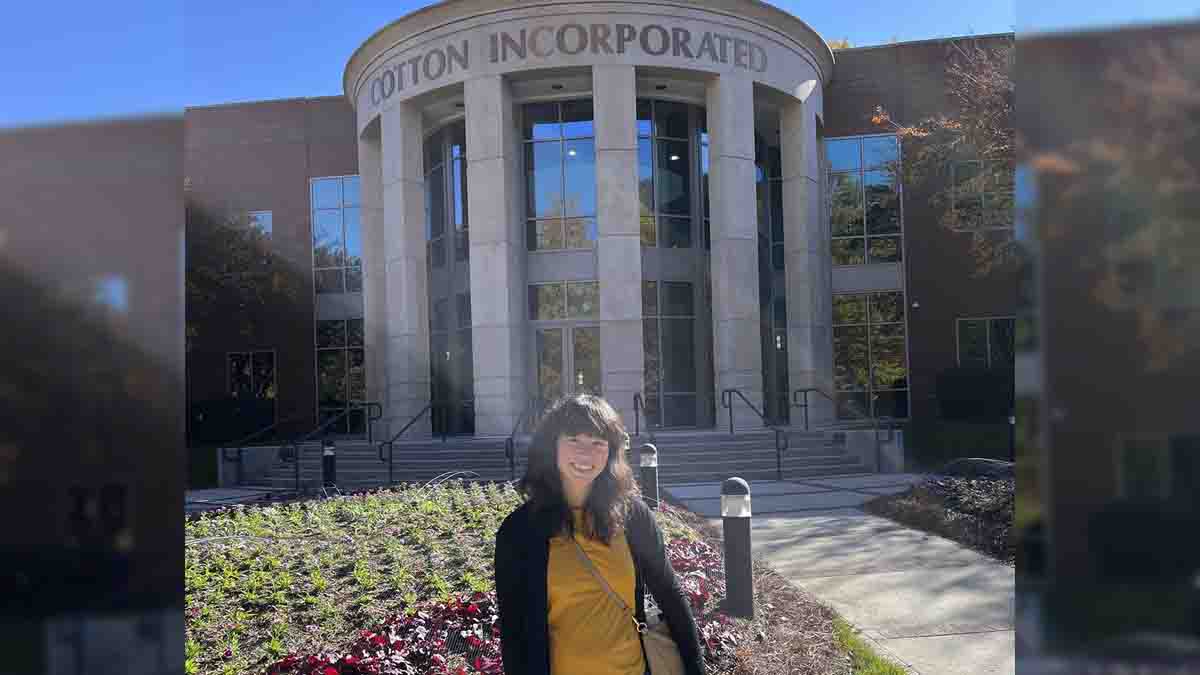FCS Connections, April/May 2022
Director's Message
“May this building be the loom that weaves the modern science and art of home economics into the fabric of a better home life.”
This inscription can be found on the brass plaque gracing the main entrance of our very own Mary Hall Niccolls Building which was dedicated in 1951 to house the (then) Department of Home Economics. Designed by Boise architect Victor N. Jones, the Home Economics Building was renamed to honor benefactor Mary Hall Niccolls in 1963. Although Jones designed the exterior of the building to match the collegiate Gothic style common to other historic buildings on campus, the interior is a whole other ball of wax. If you were a student in this fabulous campus building, you may recall the crazy interior mash-up of vintage 1950s (think black and gold checkerboard floor) and pre-mid-century modern (think sleek and simple light wood doors and trim). I love the fact that some of our recent student projects (Margaret Ritchie Wool Beanie and Margaret Ritchie Floor Tile Tie) reflect some of the somewhat clashing architectural and interior aspects of this building many of us consider our campus home.
I think the Niccolls Building and fascinating history of home economics exemplify what I love most about the multifaceted and enduring importance of the disciplines encompassing family and consumer sciences. Put succinctly: “don’t judge a book by its cover.” Although an image of the happy homemaker awaiting her husband’s homecoming after a long day at work may come to mind for some when they think of family and consumer sciences, this does not reflect what our discipline is all about. Originally referred to in 1902 as domestic scientists, our forebearers and founders were no wallflowers. Rather, they were fiercely independent, politically proactive women convinced that application of science to what was then considered “women’s work” would lead to healthier individuals, families and communities. Their research discovered scientifically proven ways to preserve food and protect families from illness. They discovered the essential nutrients, studied early childhood development and education, and found ways to help families raise well adjusted, healthy children. They applied chemistry and physics to textile construction, applied sound economic strategies to personal and family finance, and led the way to exploring the psychology, challenges and pleasures of intimate relationships. And they signed up in droves to become a well-educated “extension army” that brought all this land-grant knowledge to the American public. Albeit now with a 21st century flair, our faculty, students and staff still strive to meet these same goals. You will read about the many ways we continue to make a difference in the lives of individuals, families and communities in this newsletter.
The Department of Domestic Sciences (now the Margaret Ritchie School of Family and Consumer Sciences) was one of the University of Idaho’s earliest official academic departments, having been formed just two years after the College of Letters and Sciences, one year after the College of Agriculture, and in the same year as the College of Engineering. Amongst other successes, this historic academic unit was critically important for drawing Idaho’s women to the university. We have changed over the years, but our basic mission remains steadfast: to help people live their best lives while providing students with education that leads to great jobs and fulfilling careers. Indeed, the inscription at our beautiful building’s entrance is timeless.
Save the Date: Help us honor our heritage and plan for our future as we celebrate the 120th anniversary of our founding this fall. This celebration will take place Sept. 16-17 and will feature our 2022 Margaret Ritchie Distinguished Speaker, Linda Kirk Fox (former FCS director, dean of the College of Family and Consumer Sciences at the University of Georgia, and recipient of the 2021 Board on Human Sciences Lifetime Achievement Award). Stay tuned for more details. And remember, never judge a book by its cover.
I hope you enjoy this edition of FCS Connections.
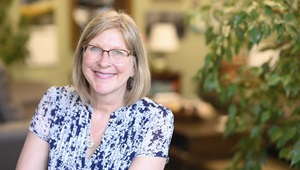 Sincerely,
Sincerely,
Shelley McGuire
Director and Professor of Nutrition
Our stories
Nike Swim
Six University of Idaho students recently found themselves presenting to one of the biggest and most well-known brands in the world.
The apparel, textiles and design students created original swimwear designs as part of a class project for Nike Swim — gaining real-world, industry experience.
Lori Wahl, senior instructor in the U of I Margaret Ritchie School of Family and Consumer Sciences, was contacted by former colleague Sumiko Kalish, design director for Nike Swim — a division of Perry Ellis International, who asked if Wahl’s students would be interested in doing a project with the company. Wahl jumped at the opportunity.
“The more students have the opportunity to work with a professional brief and with professional expectations in an industry contextual setting, the better prepared they are going to be for an interview, and ultimately a job,” Wahl said.
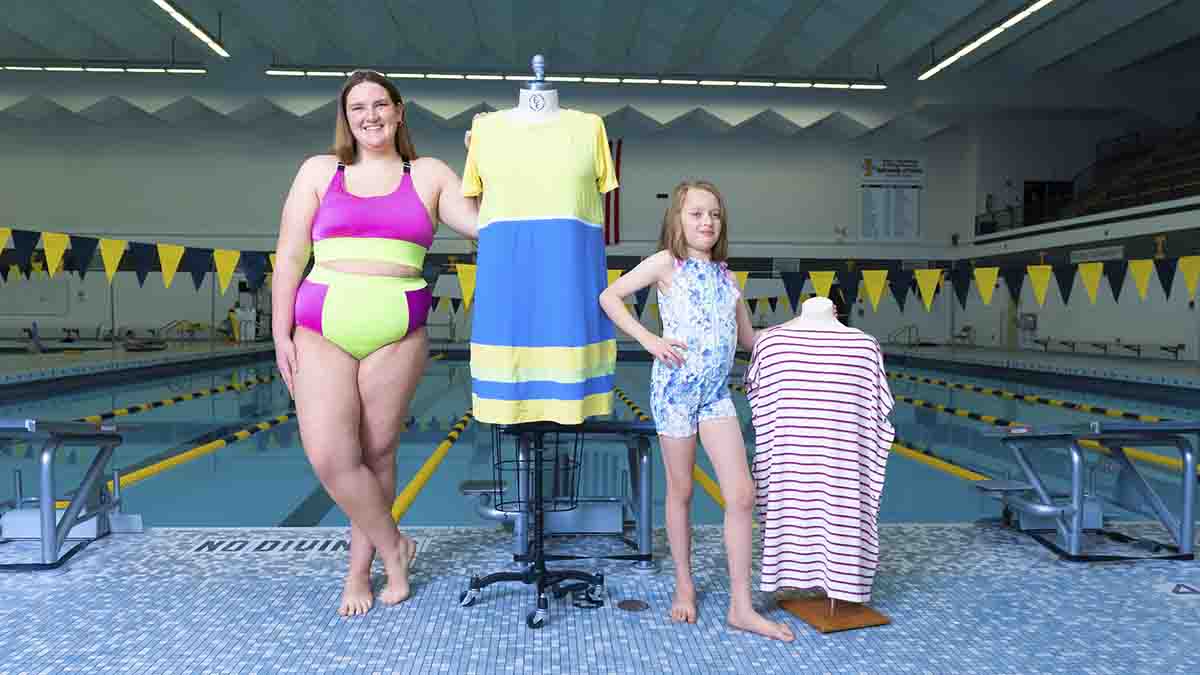
Investigating the Role of Human Milk in Mastitis
Mastitis affects up to one-third of lactating individuals, however, little is known about what role human milk itself plays in its development. Ryan Pace, a postdoctoral fellow in family and consumer sciences at the University of Idaho, is leading a research project that aims to identify those factors.
“We’re looking to see if there are components in the milk that might be predictive of mastitis development, or are just related to mastitis,” Pace said. “In general, we know very little about human milk. So, we’re looking for basic differences between healthy milk and milk that’s produced while you have mastitis.”
Mastitis is a painful and often debilitating inflammation of the mammary gland and is the primary contributor to the unplanned cessation of breastfeeding. Of the 41 participants in the study, 10 developed mastitis in the first six weeks postpartum. Milk samples were collected weekly from all participants during those six weeks.
Pace is now combing through the data to determine if there are any differences in the milk between those who developed mastitis and those who didn’t. He is looking at three different biomarkers, sodium, potassium, and somatic cell counts — the total number of cells located in the breastmilk.
“There is very little data on somatic cell counts in human milk,” Pace said. “It’s mostly used in the dairy industry, which gets back to the overarching aim of this grant. So, there is some novelty in it that we looked at somatic cell counts in the breastmilk. And there are some differences based on whether someone has mastitis.”
Since so little is known about human milk, the research is establishing a baseline for future studies. However, the goal would be to eventually develop diagnostic tests and intervention strategies to help prevent the onset of mastitis.
“One of the pie-in-the-sky ideas is that you would have a point of care diagnostic test where someone could come in and provide a milk sample and some basic health information, then we could predict whether or not they might experience mastitis in the future and have an intervention like additional lactation support,” Pace said. “That’s how I envision the outcomes, helping nursing moms understand their health and how they can continue their breastfeeding journey.”
This research is part of the Mammary and Milk Microbiomes and Metabolomes — Understanding Early Variation and Impacts on Risk for Mammary Inflammation and Mastitis” grant funded through NIH grant No. 1R01HD092297-01A1 from the Eunice Kennedy Shriver National Institute of Child Health and Human Development. The total amount of federal funds for this project is $2,406,750, which represents 100% of the project’s total cost. Of this total, $1,618,936 was awarded to U of I and the remaining amount of $787,814 was awarded to the Pacific Northwest National Laboratory for collaboration.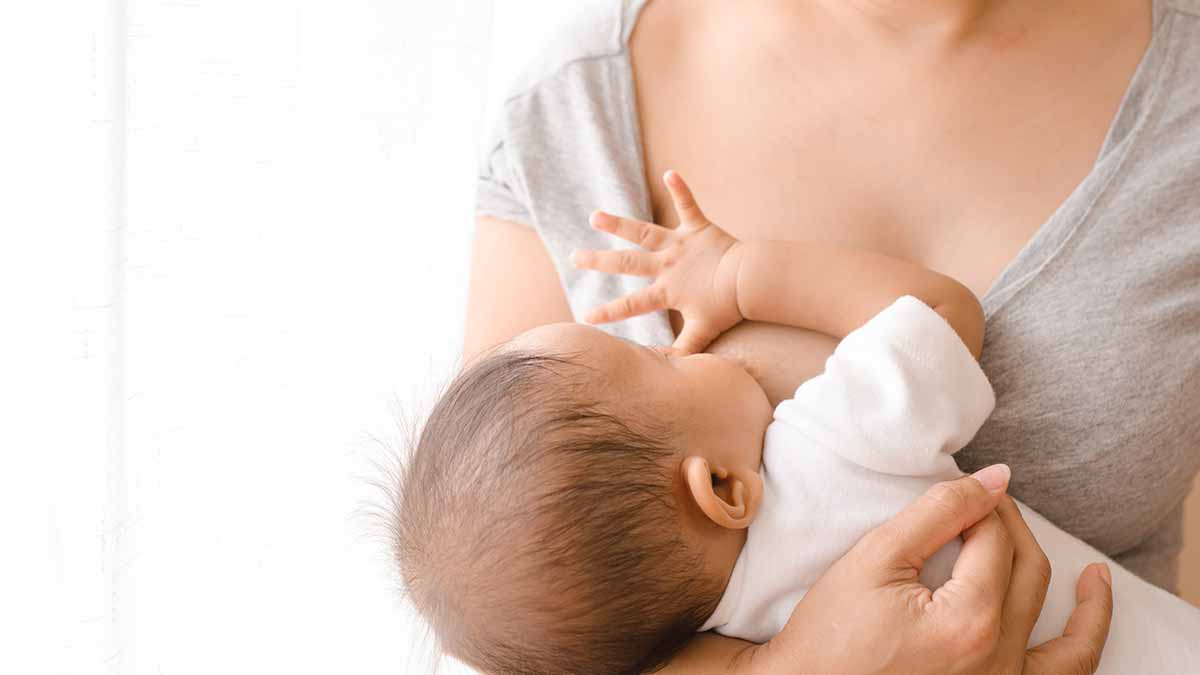
Celebrating Making Do
An exhibit that celebrates “making do” is currently on display at the University of Idaho’s Sandpoint Organic Agriculture Center. The exhibit brings recognition to children’s wear and quilts from the Great Depression and World War II eras and to the homemakers who made them to provide comfort for their families through hard times.
Sonya Meyer, professor and collections curator in the U of I Margaret Ritchie School of Family and Consumer Sciences, developed the exhibit after a recent donation to the Leila Old Historic Costume Collection.
Patricia Zuanich, a 1966 U of I graduate, donated three dresses that were made for her in the 1940’s by her grandmother, Millie Fried. The dresses were made from flour sack fabric and illustrate the frugal repurposing of fabric during the time.
“The exhibit up there now I did to educate about the use of sack fabric,” Meyer said. “My philosophy is, to have a collection like this, we need to use it and share it with the public.”
Sack cloth served as a fabric staple for many rural homemakers starting in the mid-19th century when cotton sacks replaced wooden barrels as transportation for farm and food products. Homemakers repurposed the utilitarian sacks to create items like towels, curtains, underwear and quilt backing.
Eventually, manufactures realized the growing popularity of repurposing the sacks for household textiles and began producing them in colorful prints, leading to more uses.
The oldest dress donated by Zuanich is a green mini check fabric with short puff sleeves. Fading about an inch above the hemline indicates that Zuanich’s mother, Emma Pratt, likely let down the hem to lengthen the dress for further use. Another dress is a pink polka dot pinafore with two front pockets and handmade buttonholes. The newest dress includes set-in sleeves, back buttons, handmade buttonholes and ties sewn at the side to tie in the back.
“I am most happy to have found a home for these pieces of clothing from my childhood,” Zuanich said. “It is special to me that the saving of these items by my mom has finally made meaningful sense. I can only imagine how proud my grandmother, Millie and my mom, Emma, would be to have these garments included in the Leila Old Historic Costume Collection.”
Also included in the exhibit are quilts from the Bosom Buddies Quilt Group and Moose Country Quilts, including one with sack cloth used as backing. Antique furniture and toys from the Bonner County Historical Society and Museum, and Pend Oreille Arts Council round out the displays.
Meyer hopes to continue those partnerships and is planning a wedding dress theme for the summer.
“We have some amazing wedding dresses, some from the 19th century and others from the 20th century,” she said. “What better thing to put up in May and June than wedding dresses?”
Meyer first began working in the space at the center in summer 2021. The first exhibit featured garments from women connected to the historical costume collection or to the university. A winter exhibit featured family winter sports wear from the 1940s.
The public is welcome to stop by the Sandpoint Organic Agriculture Center to view the exhibit during normal business hours. A reception is planned for April 29, from 5-7 p.m. PT, and an open house and program on the care of quilts will be offered April 30 from noon-4 p.m. Contact Sonya Meyer to learn more, sonyam@uidaho.edu.
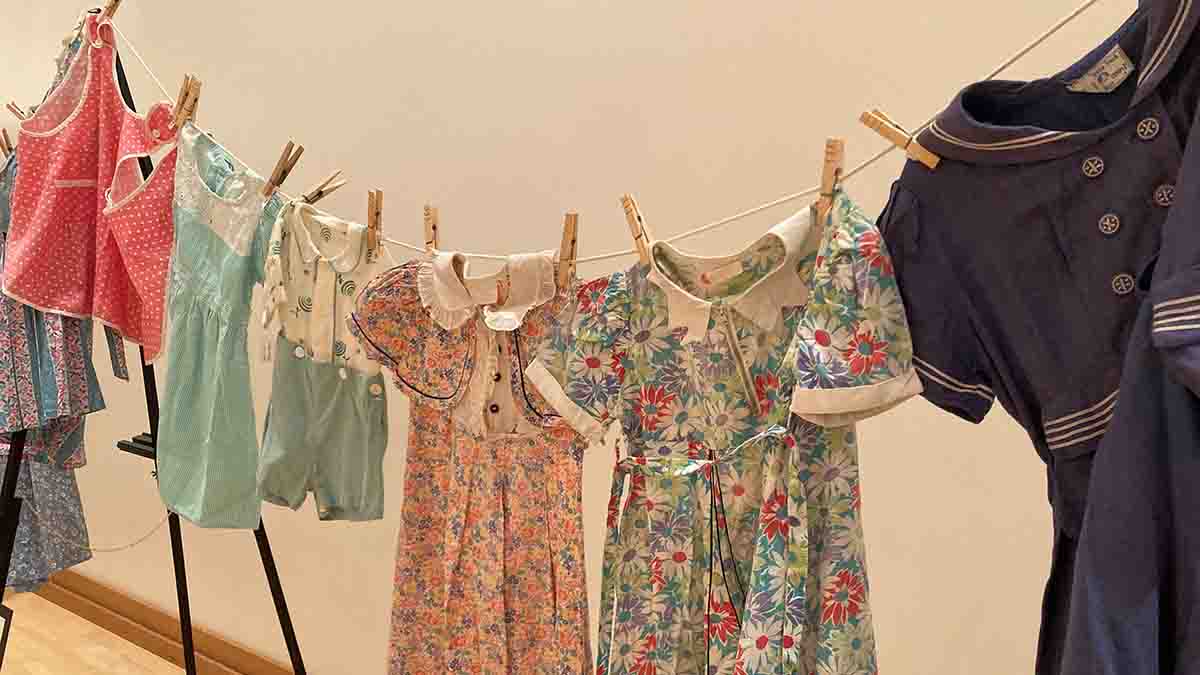
Diversity in Dietetics
Thanks to a generous contribution from an anonymous donor, the Margaret Ritchie School of Family and Consumer Sciences has the opportunity to support students from underrepresented populations interested in achieving a master’s degree in dietetics. With an endowment of $25,000, the College of Agricultural and Life Sciences will be able to award a $1,000 scholarship to a student every year. There is $15,000 left to raise for this scholarship to be fully funded.
This annual scholarship will enhance our efforts to attract students from underrepresented backgrounds to careers as dietitians — a critical issue in the state of Idaho. One example is the growing need for Spanish-speaking dietitians to serve in community-facing roles. Currently, there are insufficient registered dietitian nutritionists who are bilingual in Idaho, which impairs access to health care and quality of care. With a substantial and growing population of Spanish speakers in Idaho, as well as other people from diverse backgrounds moving to the state, it is imperative we fill the need of qualified dietitians with a variety of experiences to best serve our communities.
We hope you’ll consider supporting the Diversity in Dietetics Scholarship.
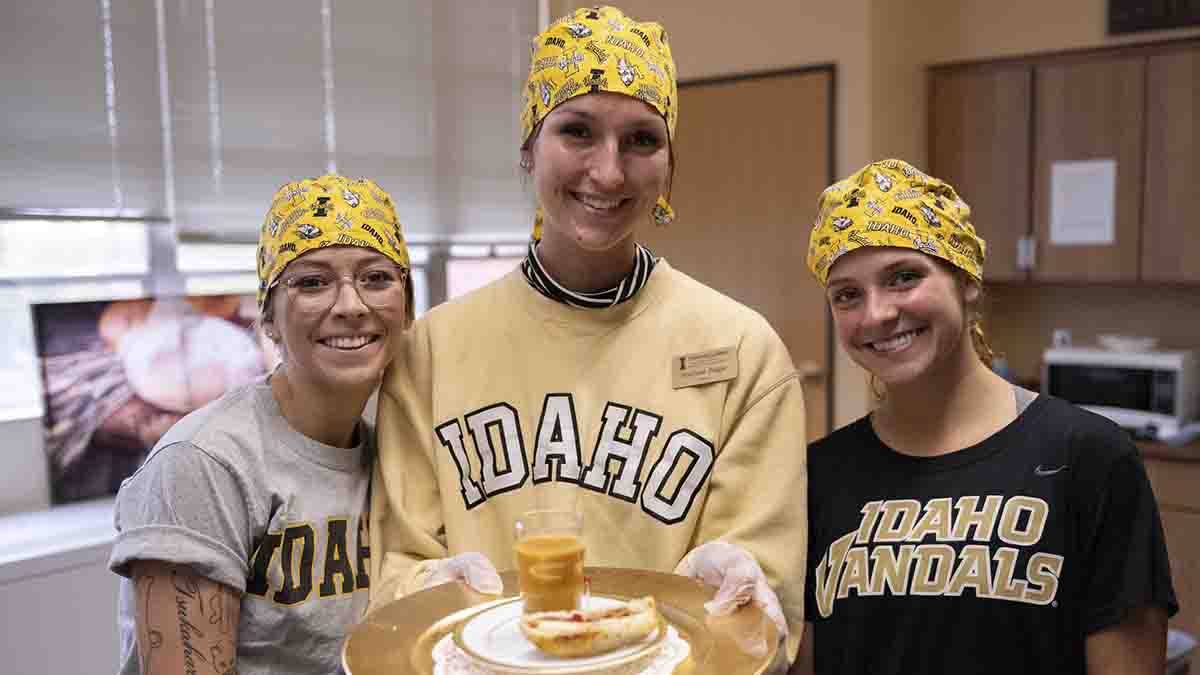
Faculty and student success
Students in the coordinated program in dietetics are completing their final eight-week supervised practice rotations in clinical dietetics and food service management throughout the state. Moscow-based student Bin “Emma” Liang created a traditional festival meal encompassing flavors from many different regions of China to celebrate the Lunar New Year at Gritman Medical Center.
Apparel, textiles and design students, led by Senior Instructor Lori Wahl, created a necktie, a silk scarf and beanie as part of the design and development for a client class. The students worked with the VandalStore to turn their ideas into reality and their products are now for sale.
FCS Director Shelley McGuire gave an invited presentation entitled “Human milk: What do we know, and more importantly, what don’t we know?” at the Diane Anderson Neonatal Nutrition Conference at the Texas Children’s Hospital. She was also a keynote speaker at the Oregon State Health and Science University’s Thriving Brains and Bodies: Nutrition from Conception Through Infancy conference. In 2022, she was elected as an officer and member of the executive committee of the Association of Nutrition Departments and Programs and was appointed to the United Nations Breastfeeding and Global Education Initiative Expert Committee.
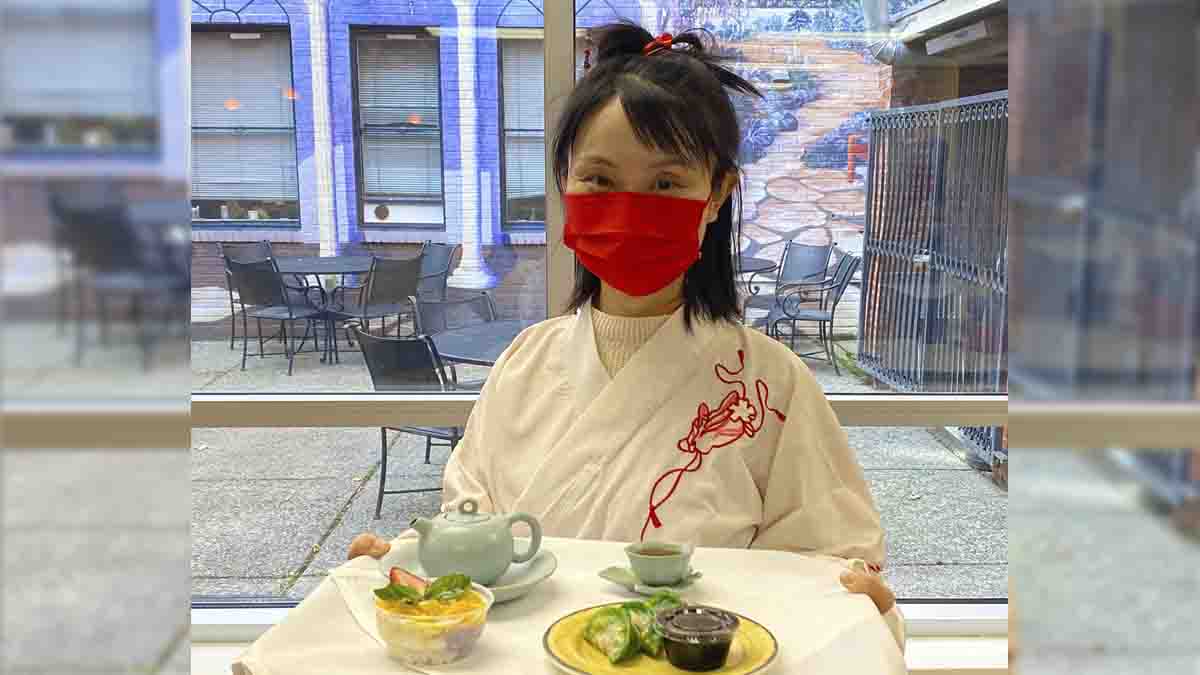
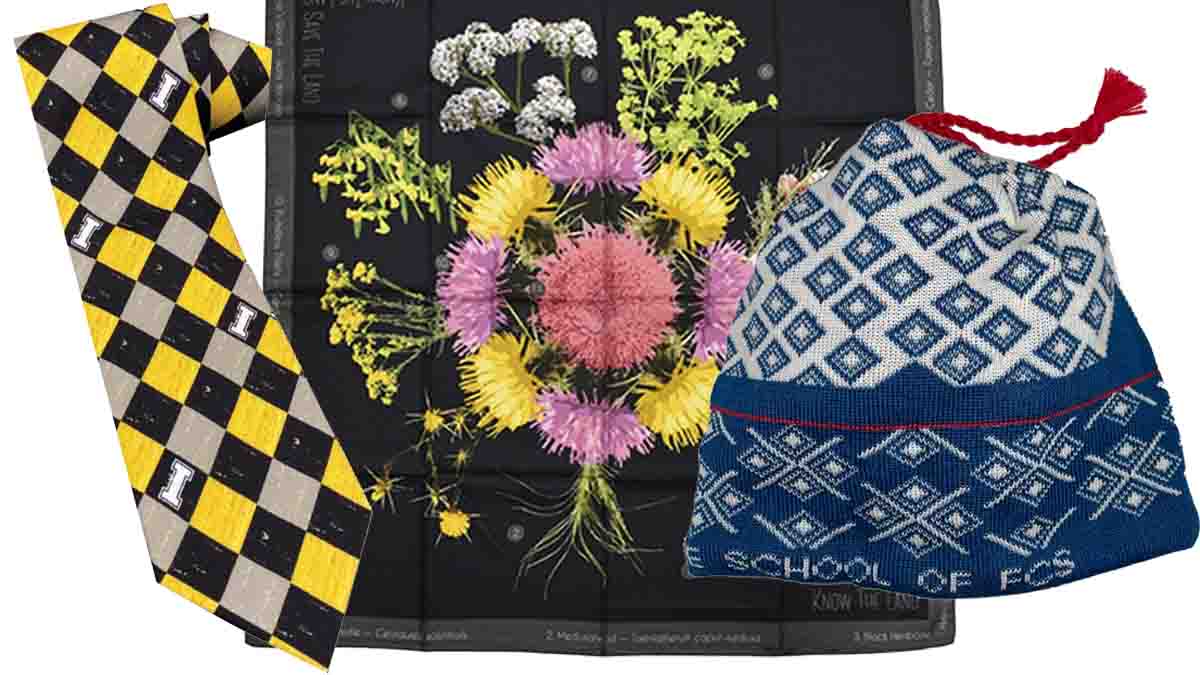
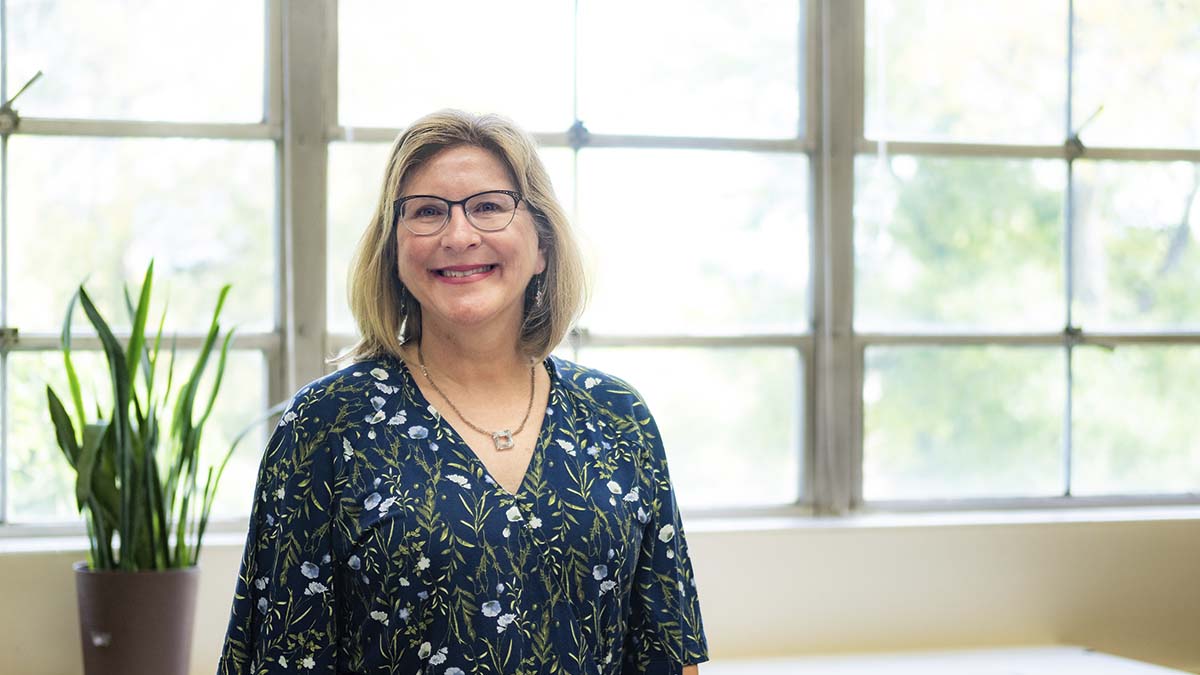
Lori Wahl, Sonya Meyer and Patrick Brown-Hayes accompanied apparel, textiles and design students Claire Smith, Audrey Hawes, Rachel Houle and Juli Howell attended the Outdoor Retailer Snow Show in Colorado where they networked with retailers and brands in the outdoor industry. The students are members of the ATD Club and received a competitive award to cover travel expenses. Brown-Hayes also served as a judge for the annual Innovation Awards.
Apparel, textiles and design student Adrianna Kauffman studied abroad at Accademia Italiana in Florence, Italy, during the fall 2021 semester. The FCS Director’s Scholarship helped financially support her study abroad experience.
FCS Director Shelley McGuire and coauthor Kathy Berman from Washington State University published the 4th edition of their introductory nutrition textbook, Nutritional Sciences: From Fundamentals to Foods, in spring 2022. The textbook is used in the U of I introductory nutrition class and at many other colleges and universities in the U.S. and around the globe.
Students in FCS 480: Early Childhood Special Education Curriculum, offered several online short programs for young children and their families in North Central Idaho as a celebration of the Week of the Young Child.
Students in FCS 492 Nutrition Education, taught by Katie Miner, and Eat Smart Idaho, under the direction of Annie Roe, collaborated to provide nutrition education to hidden hungry populations through the Moscow School District Adventure Club, University of Idaho Children’s Center and Vandal Health Education. This partnership gave professional teaching experience to nutrition students and expanded the reach of Eat Smart Idaho’s program.
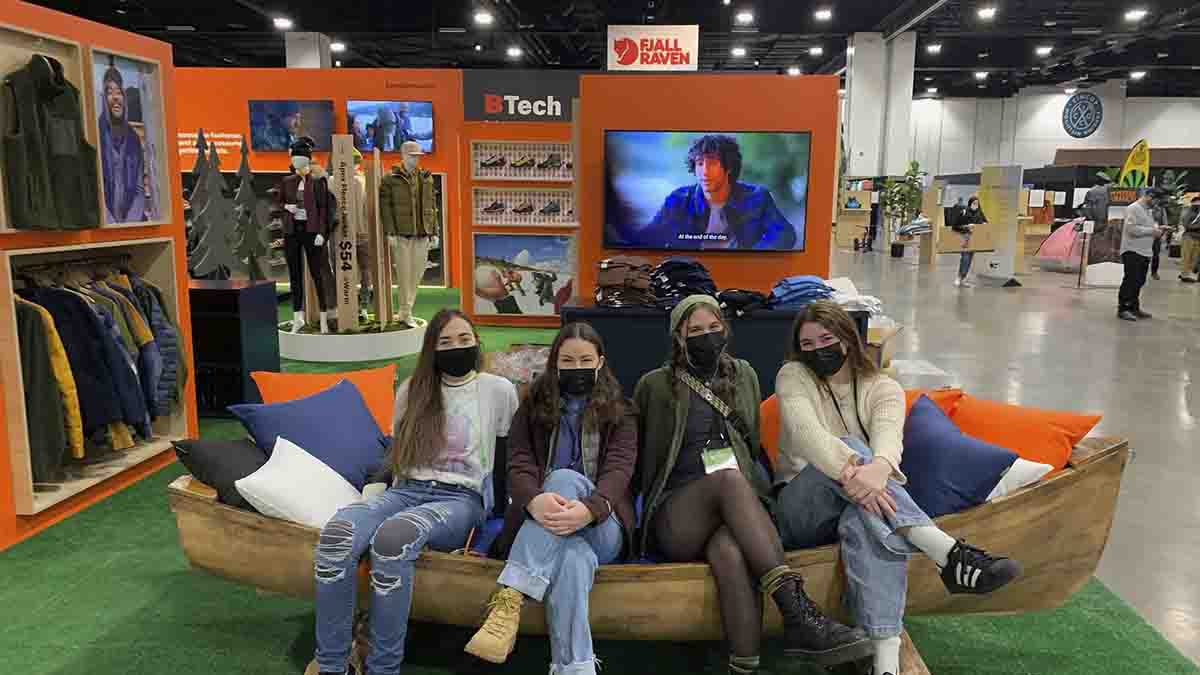
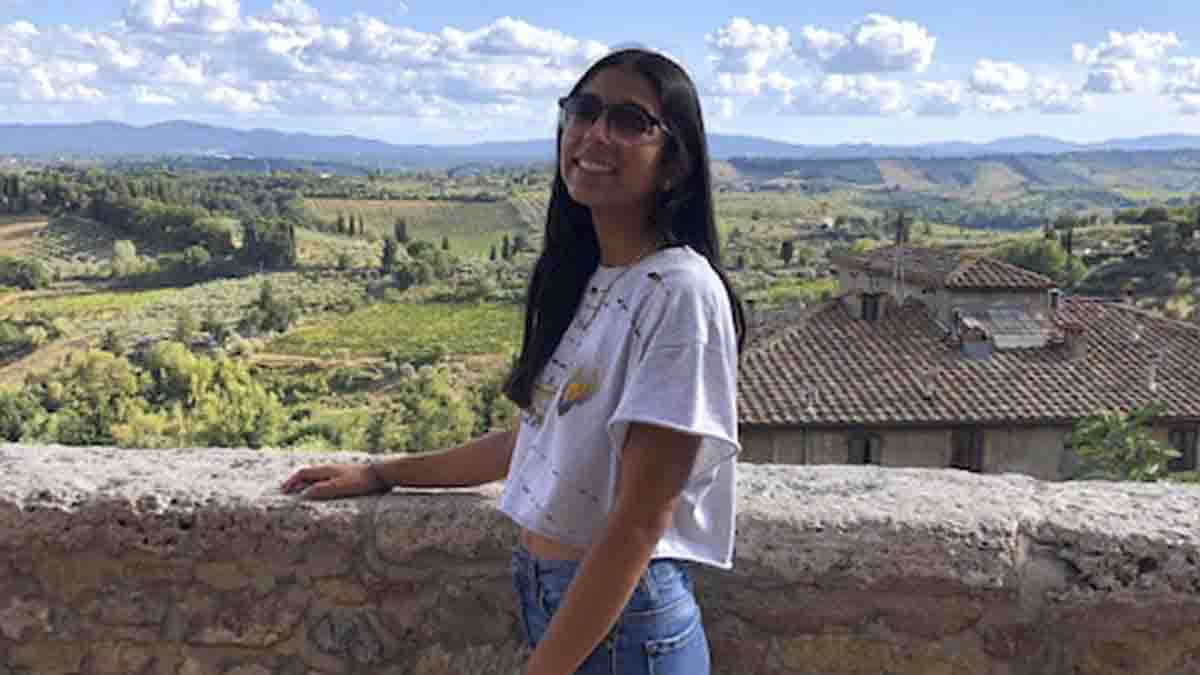
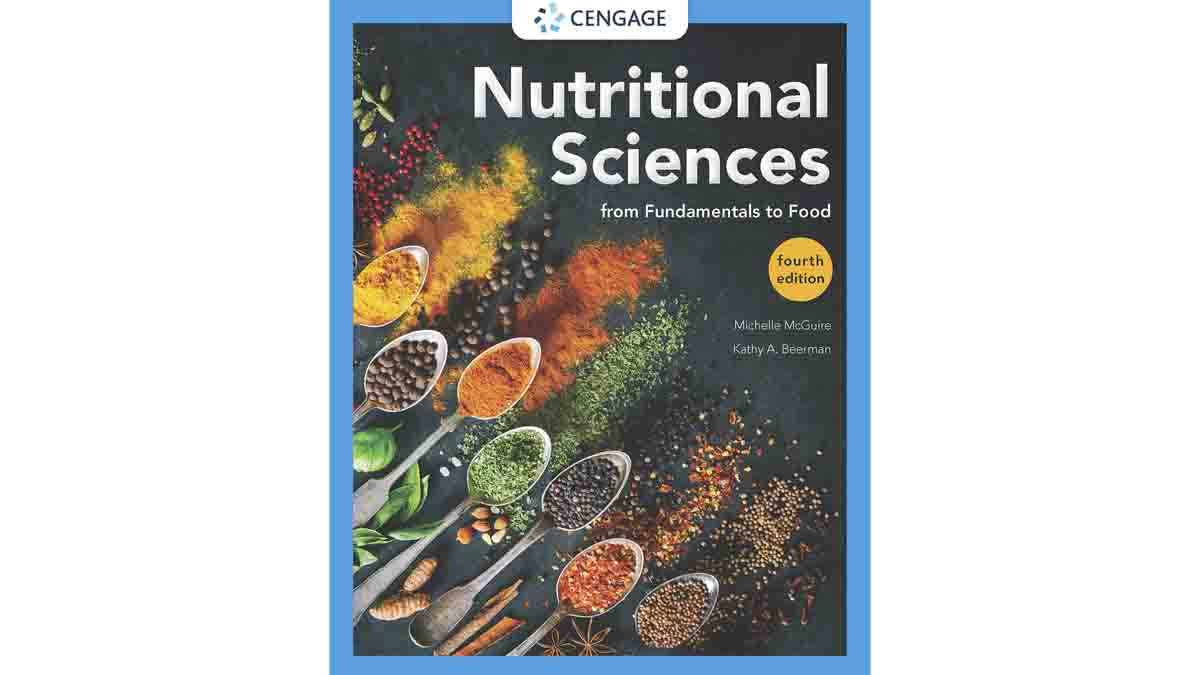
Terry Saunders, team cleaning specialist for the Niccolls Building, received the Outstanding Staff Award in the Service/Maintenance category from the University of Idaho. Terry goes above and beyond to keep our halls and walls sparkling, and the FCS faculty, staff and students whole-heartedly thanks Terry for all he does for the school and the entire FCS family.
Food and Nutrition students in FCS 275 Experimental Foods showcased their recipe development projects at the University of Idaho Library as part of a cookbook display during the month of April. This project is a collaboration between Katie Miner and the library to increase circulation of the recipe collection. Cookbook recommendations from nutrition faculty were also on display.
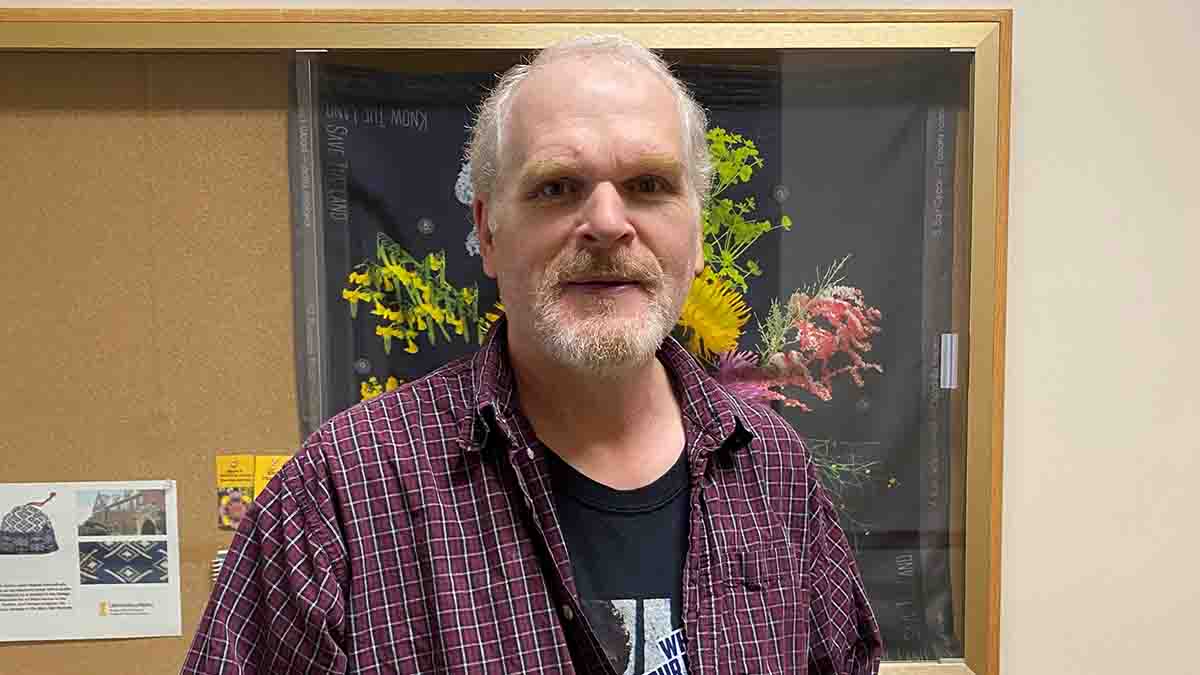
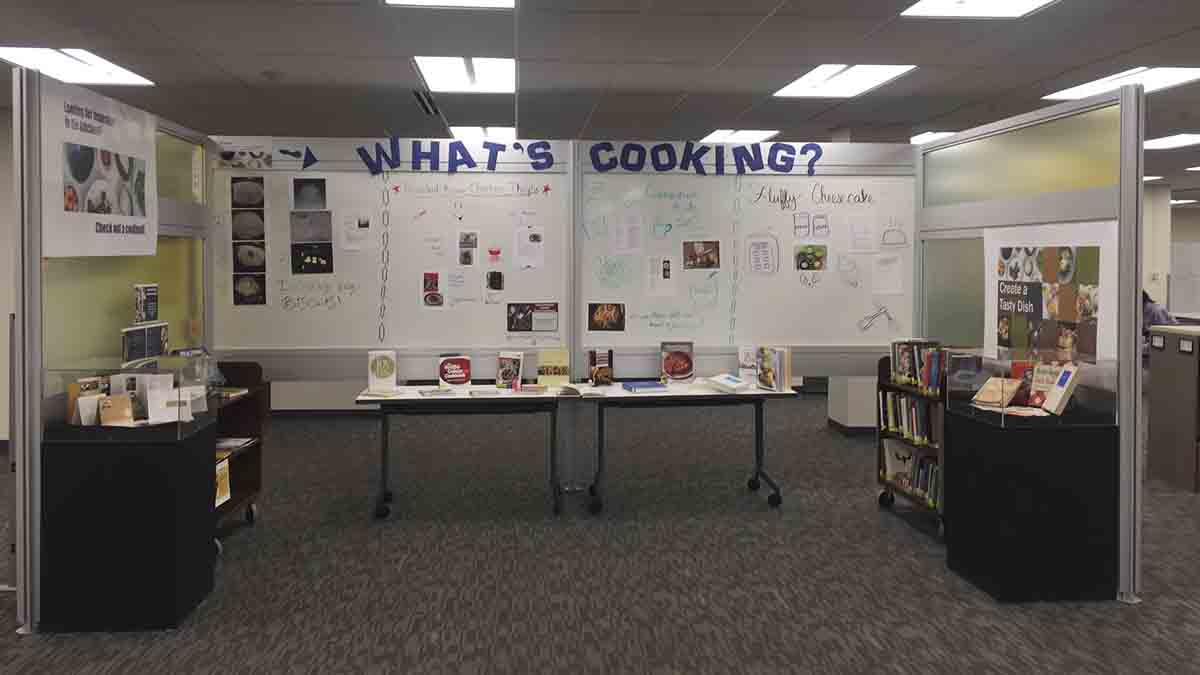
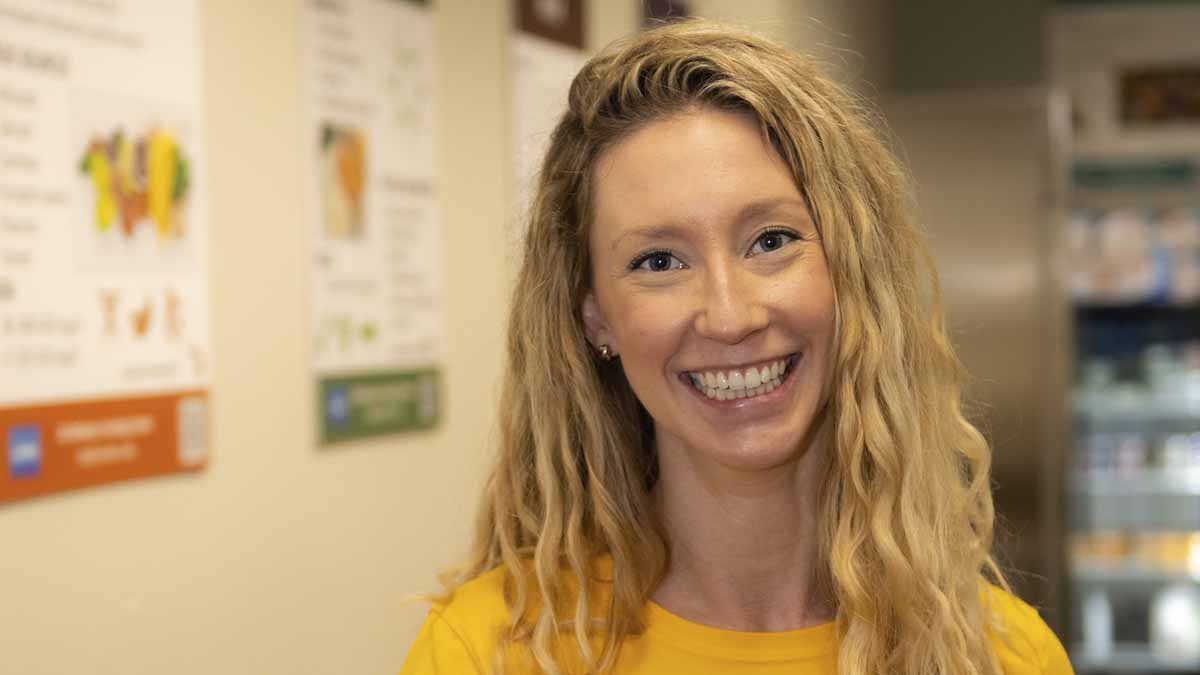
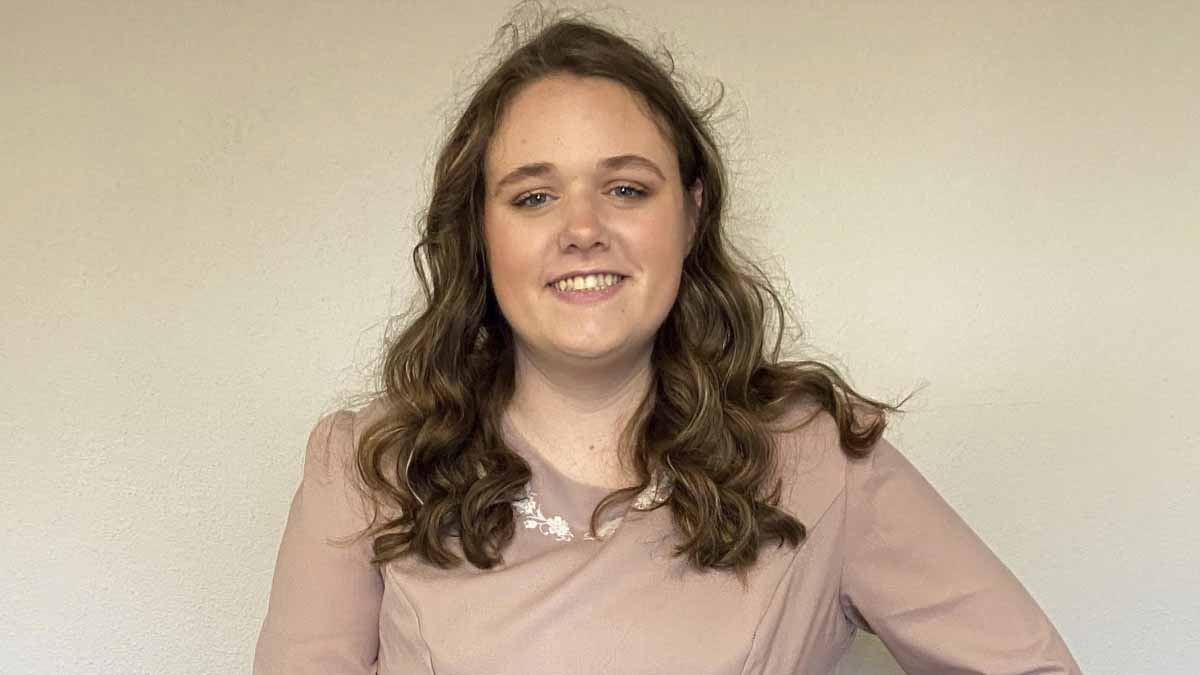
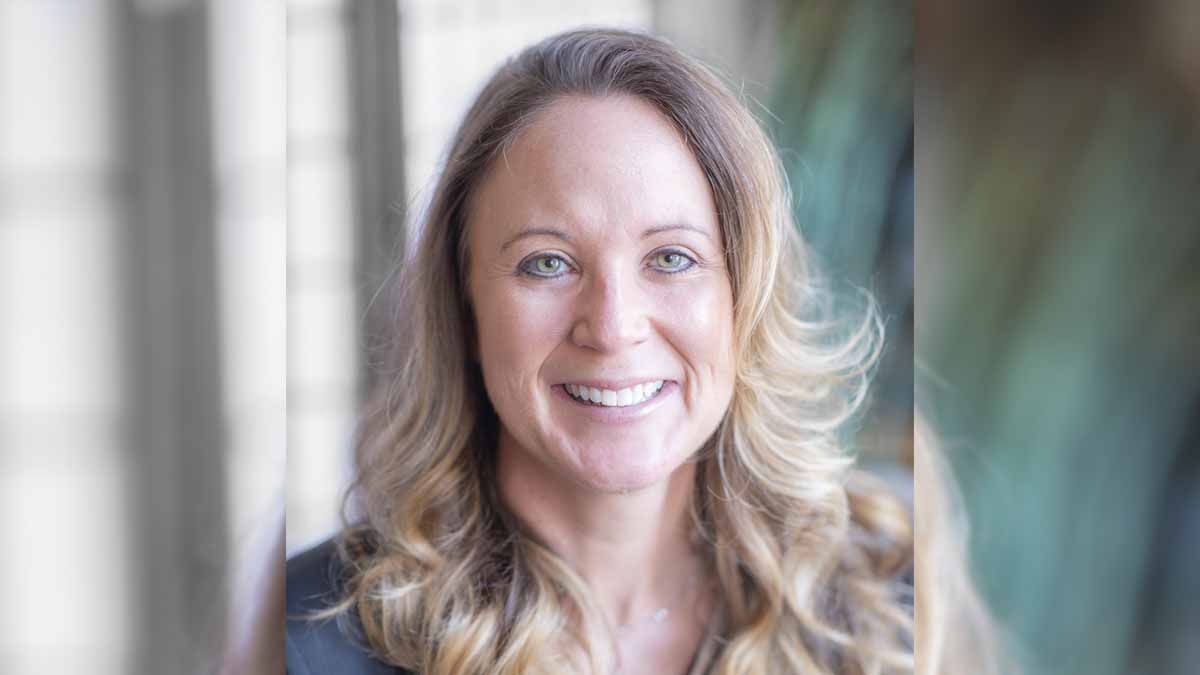
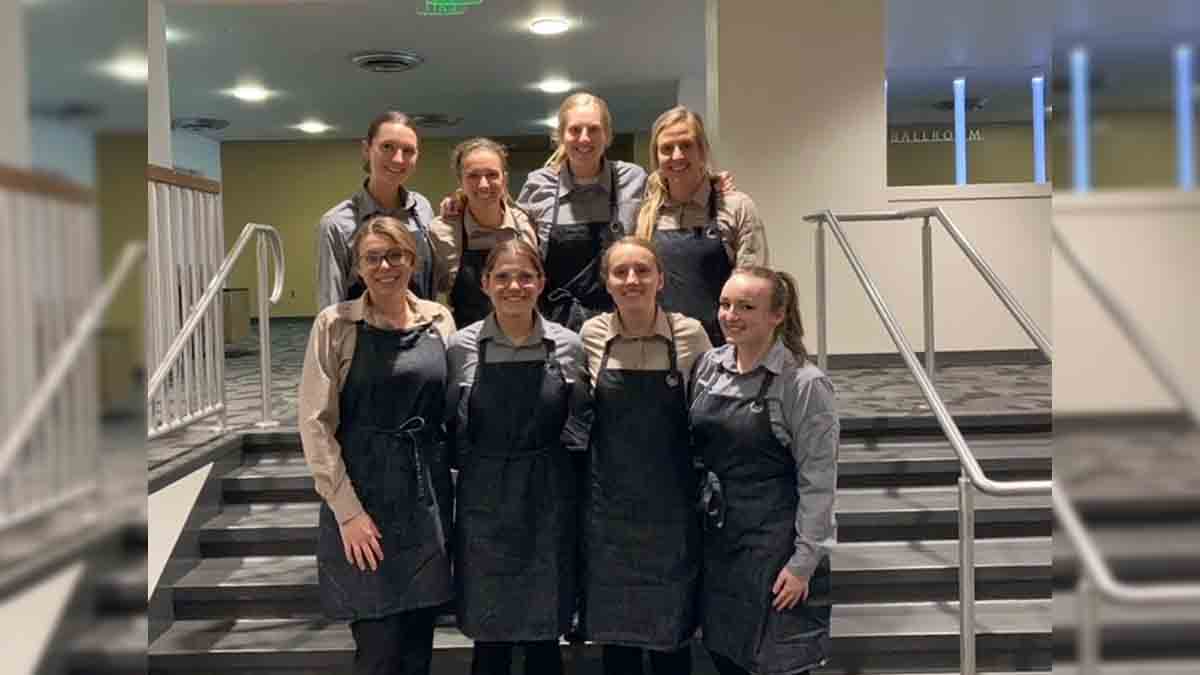
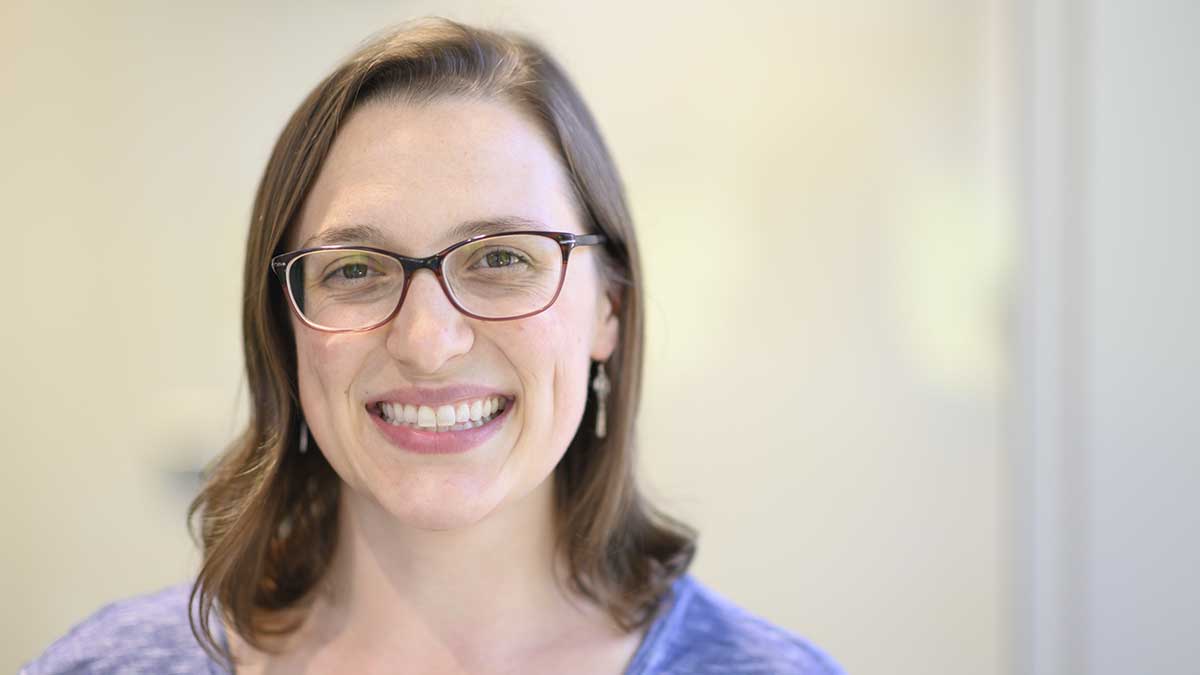
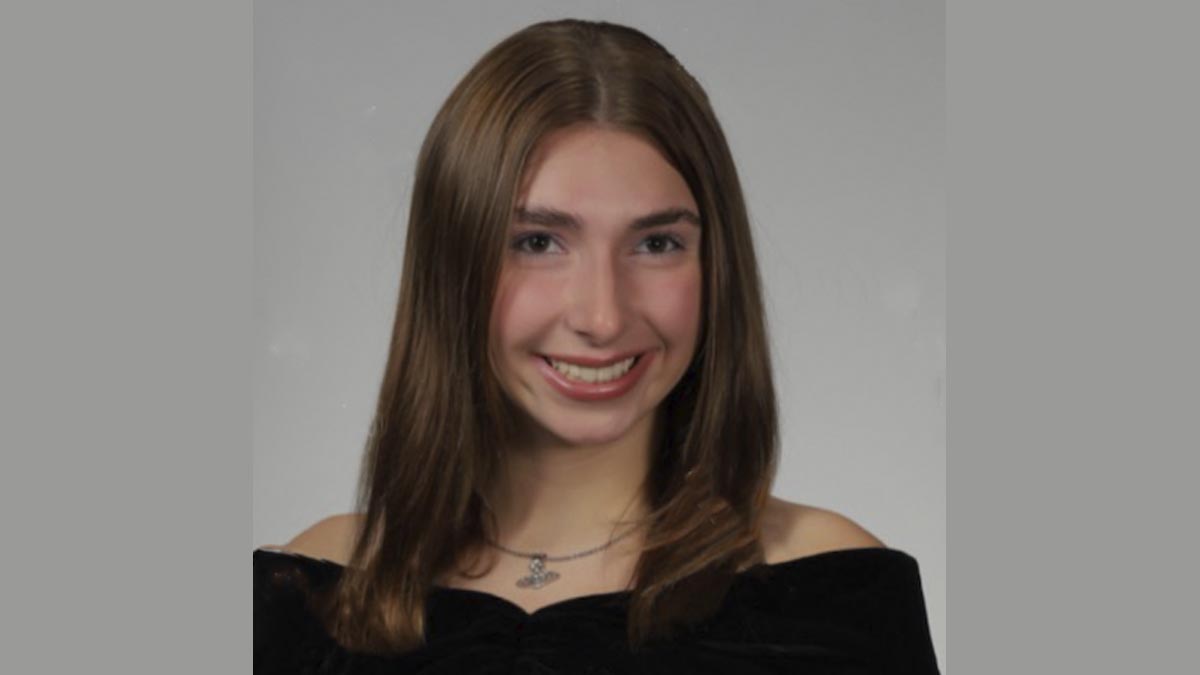
Research corner
Doctoral student Alex Gogel was awarded a $10,000 grant from the International Society for Research in Human Milk and Lactation as part of their Trainee Expansion Program. The grant is intended to assist graduate students or early career scientists with research activities in the field of human milk and lactation at different institutions. Gogel is currently on a two-month research trip to Oregon State University to work with Assistant Professor David Dallas, an expert in milk protein research. Gogel will measure proteins in 56 samples originally collected in the Moscow/Pullman area to investigate if there are variations of human milk proteins in foremilk versus hindmilk, and milk from the morning versus the evening. This research is part of a project looking at the microbiome, immune factors, macronutrients and other milk components in association with time of day and within feed variation.
Doctoral student Cassandra Partridge received a $15,000 scholarship from the Cascadia Institute of Food Technologists to support her graduate studies. Partridge is investigating the impacts of maternal dietary intake on human milk composition and allergies during breastfeeding. Her work includes investigating the usefulness of a lateral flow device to detect bovine milk and soy proteins in milk produced by women consuming these foods and exploring the impact of maternal bovine milk and soy milk consumption on human milk composition and maternal/infant gastrointestinal microbiomes.
Graduate student Rebecca Sermeno presented her thesis study investigating head start teachers’ science teaching attitude and self-efficacy at the American Educational Research Association annual conference in San Diego. Sermeno is specializing in child development.
FCS graduate student Maggie Zee presented her research on the feasibility of creating nonwoven and woven textile materials out of hops bine at the American Association of Textile and Color Chemists in Durham, North Carolina. Read more about her research.
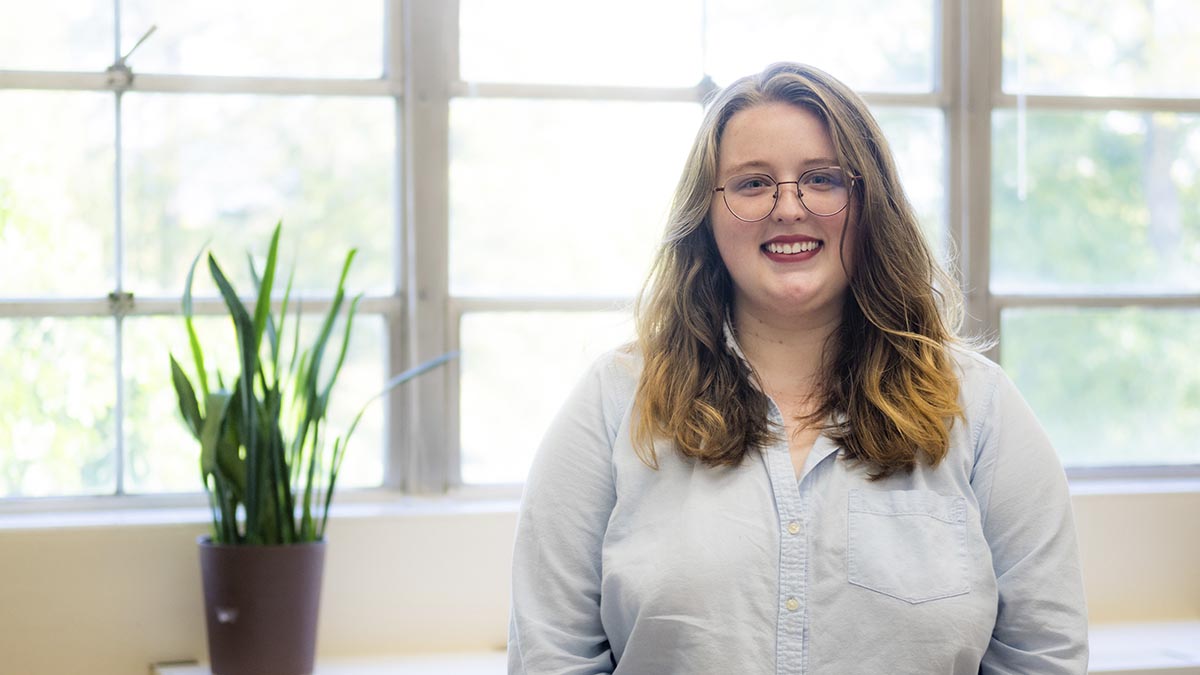
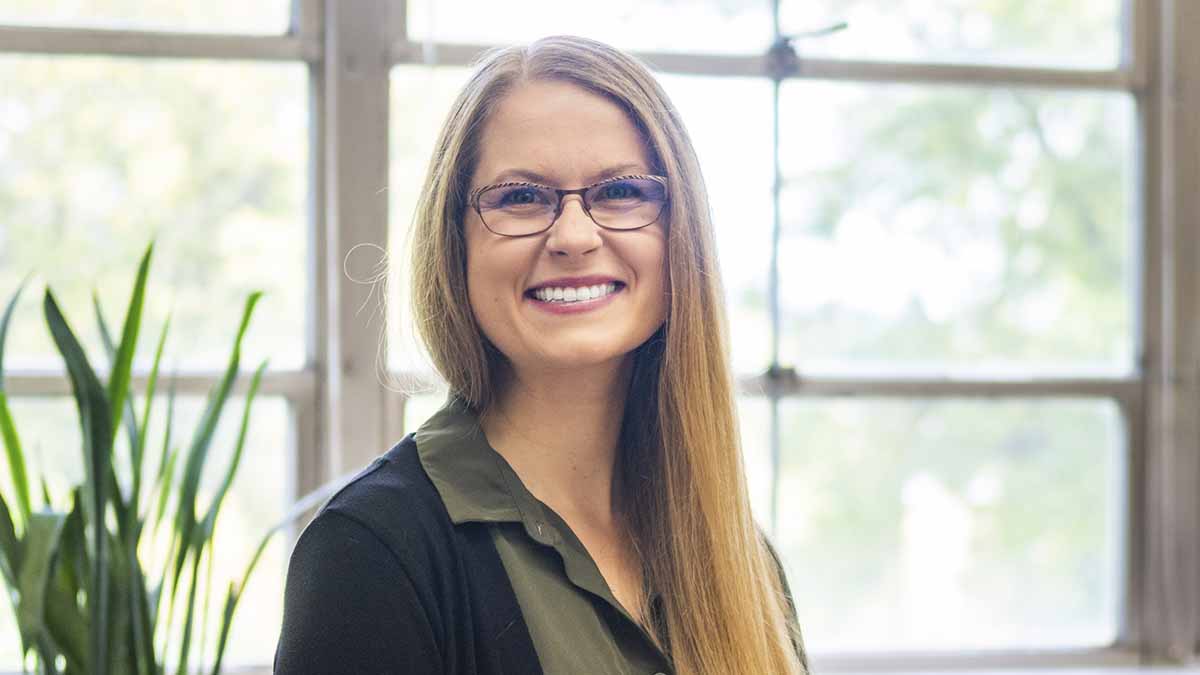
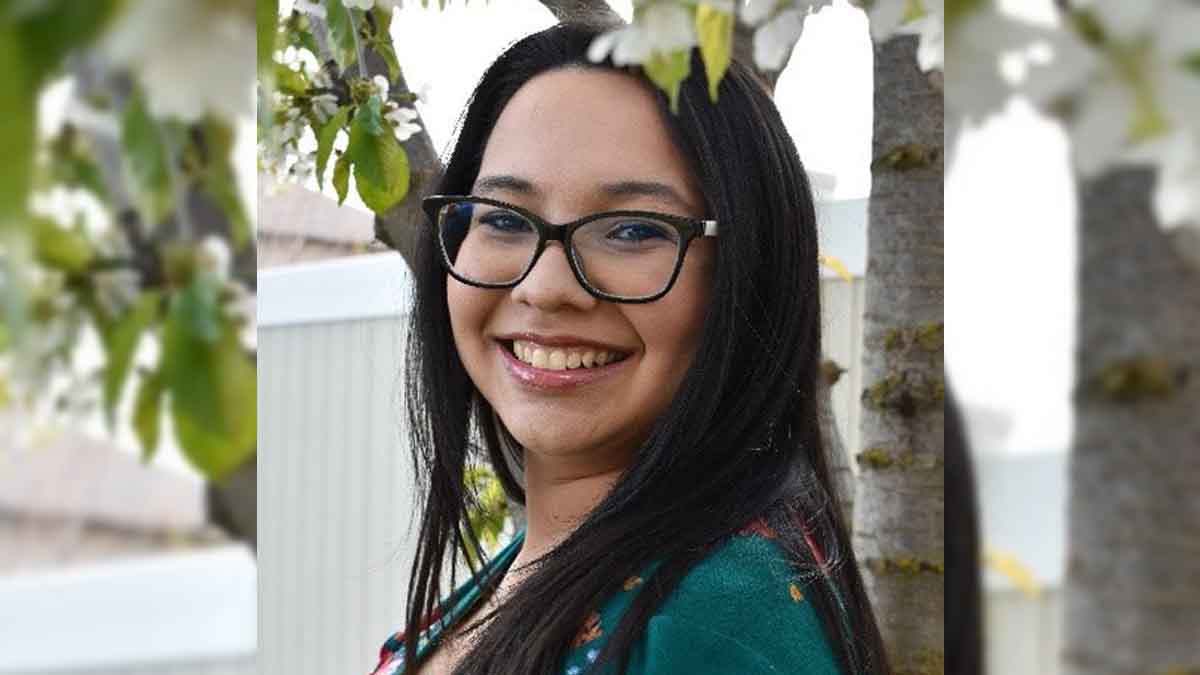
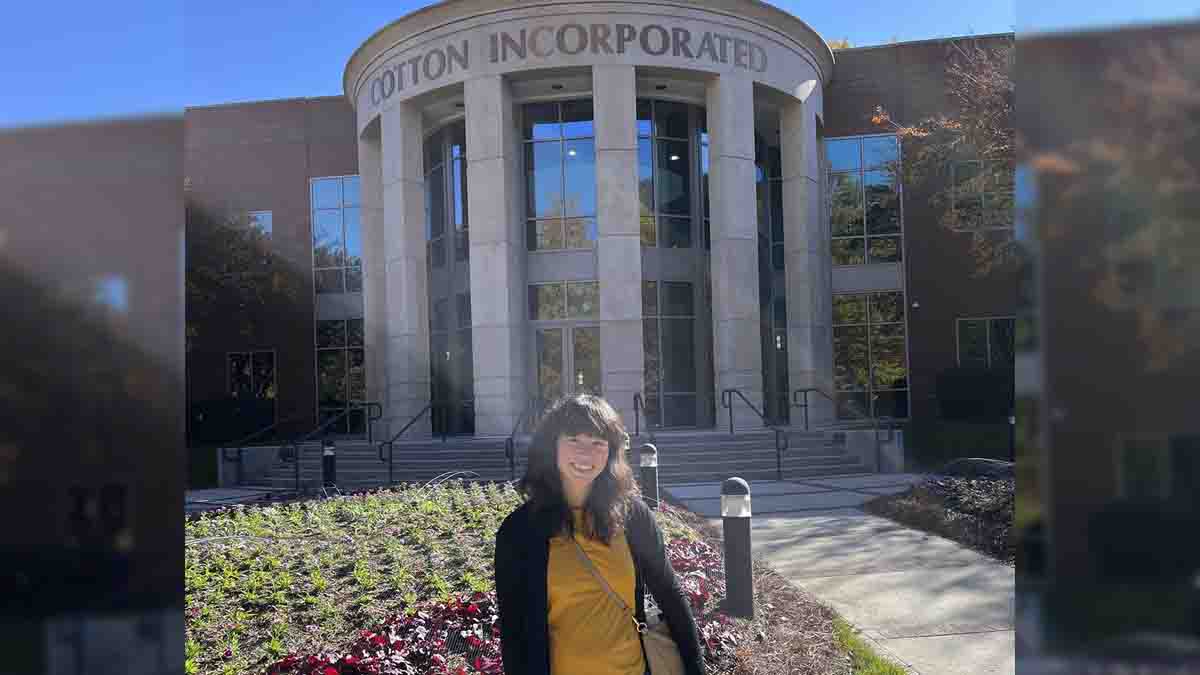
Featured events
- Culinary Base Camp | June 13-14
Join nutrition faculty for a professional development opportunity focusing on culinary arts, food science and nutrition. - Textiles Base Camp | June 15-17
This summer workshop series will cover knitting, sewing a zipper pouch, padlet concept and color board building, and tapestry weaving. Cost is $80/person and registration closes May 31. - Summer Design Days | June 22-25 (in-person) or June 23-24 (virtual)
This workshop series is for students interested in exploring a wide range of art and design disciplines through hands-on projects. Cost is $400/person for the in-person sessions and $150/person for the virtual option. Registration closes June 1. - Celebrating 120 Years of FCS | Sept. 16-17
Make plans to join us in Moscow to celebrate the 120th anniversary of the Family and Consumer Sciences department (originally the Department of Domestic Sciences). More information will be forthcoming, including details on the Margaret Ritchie Distinguished Speaker series featuring Linda Kirk Fox. - CALS Days: Explore a Future in Agriculture, Food, Family and Consumer Sciences | Sept. 30-Oct. 2
The annual CALS Days event will be held in person on the Moscow campus and allows high school students the opportunity to learn more about U of I, attend hands-on workshops, compete in FCCLA skill demonstrations and discover all there is to know about the CALS family. Registration will be available in August.
Feedback or suggestions? Please pass them along through calsnews@uidaho.edu.
Sign up to receive FCS Connections as a biannual e-newsletter.







